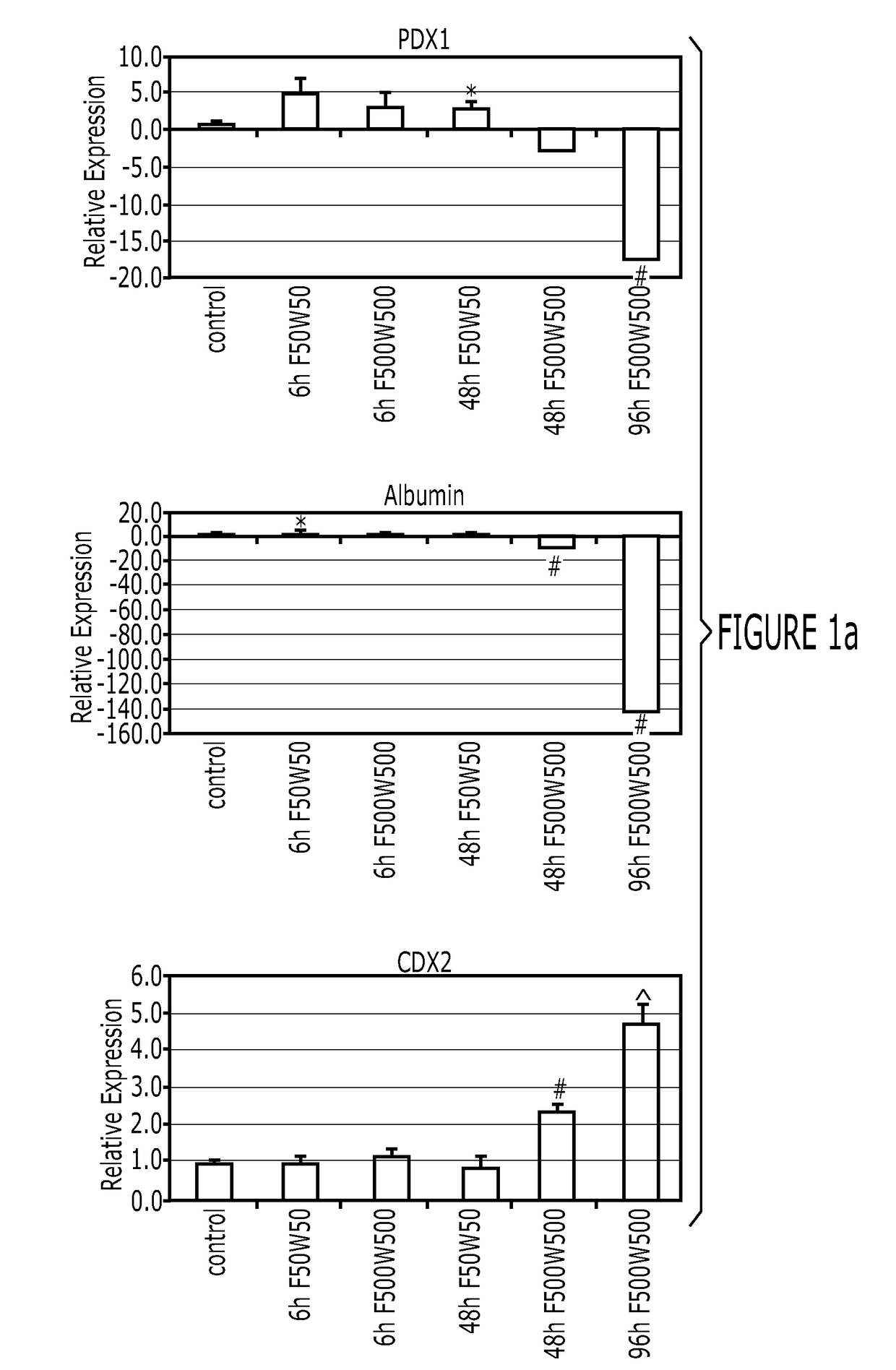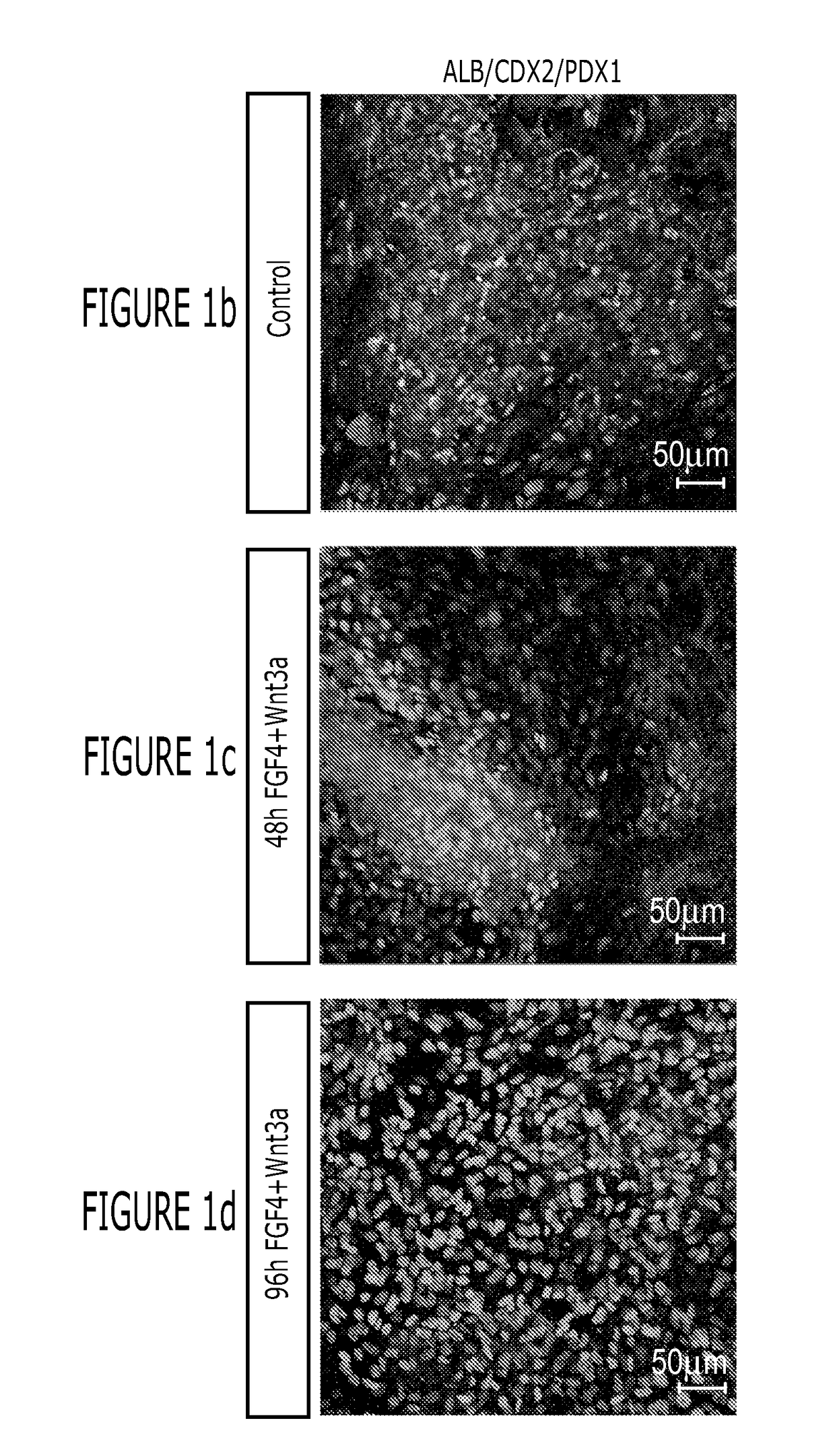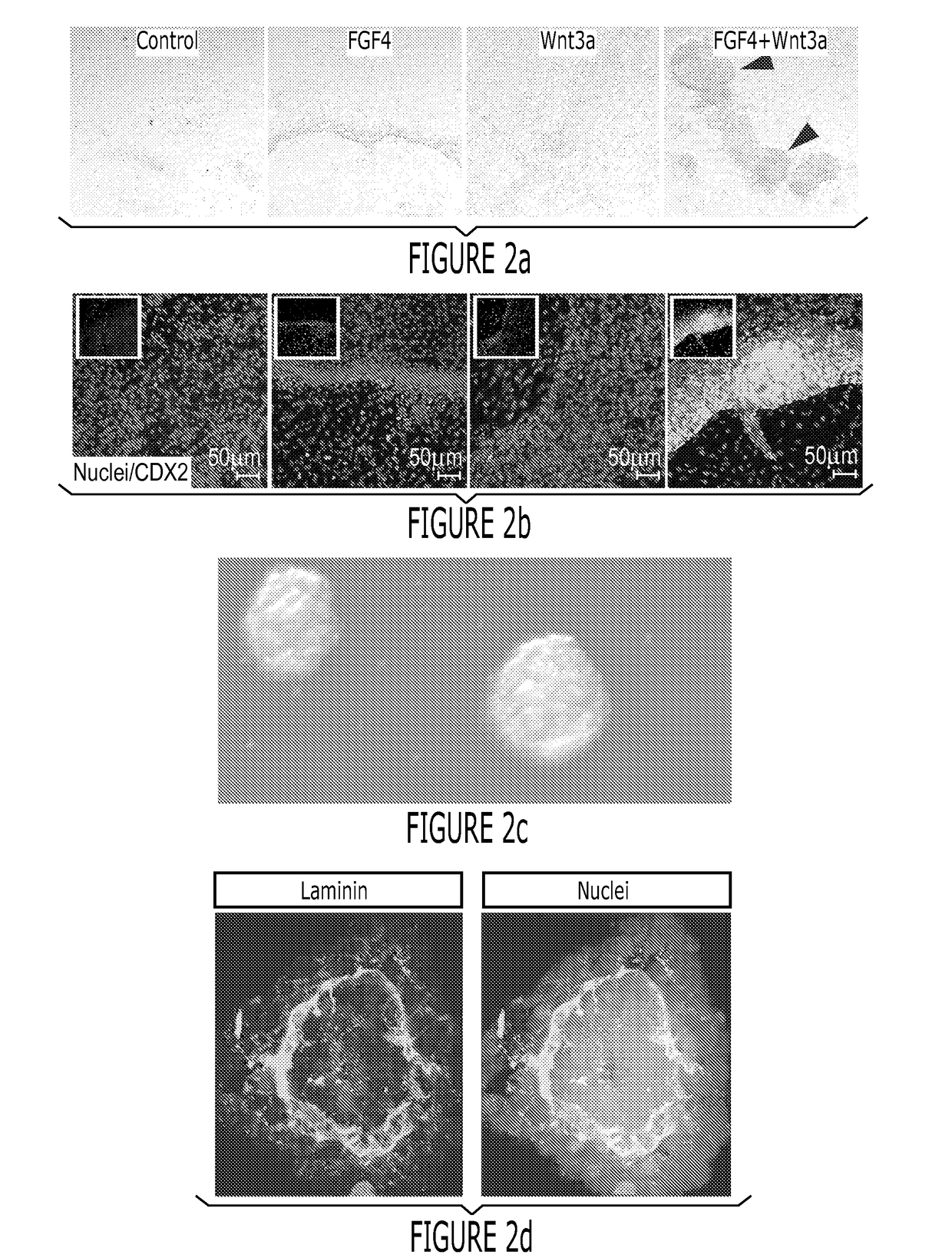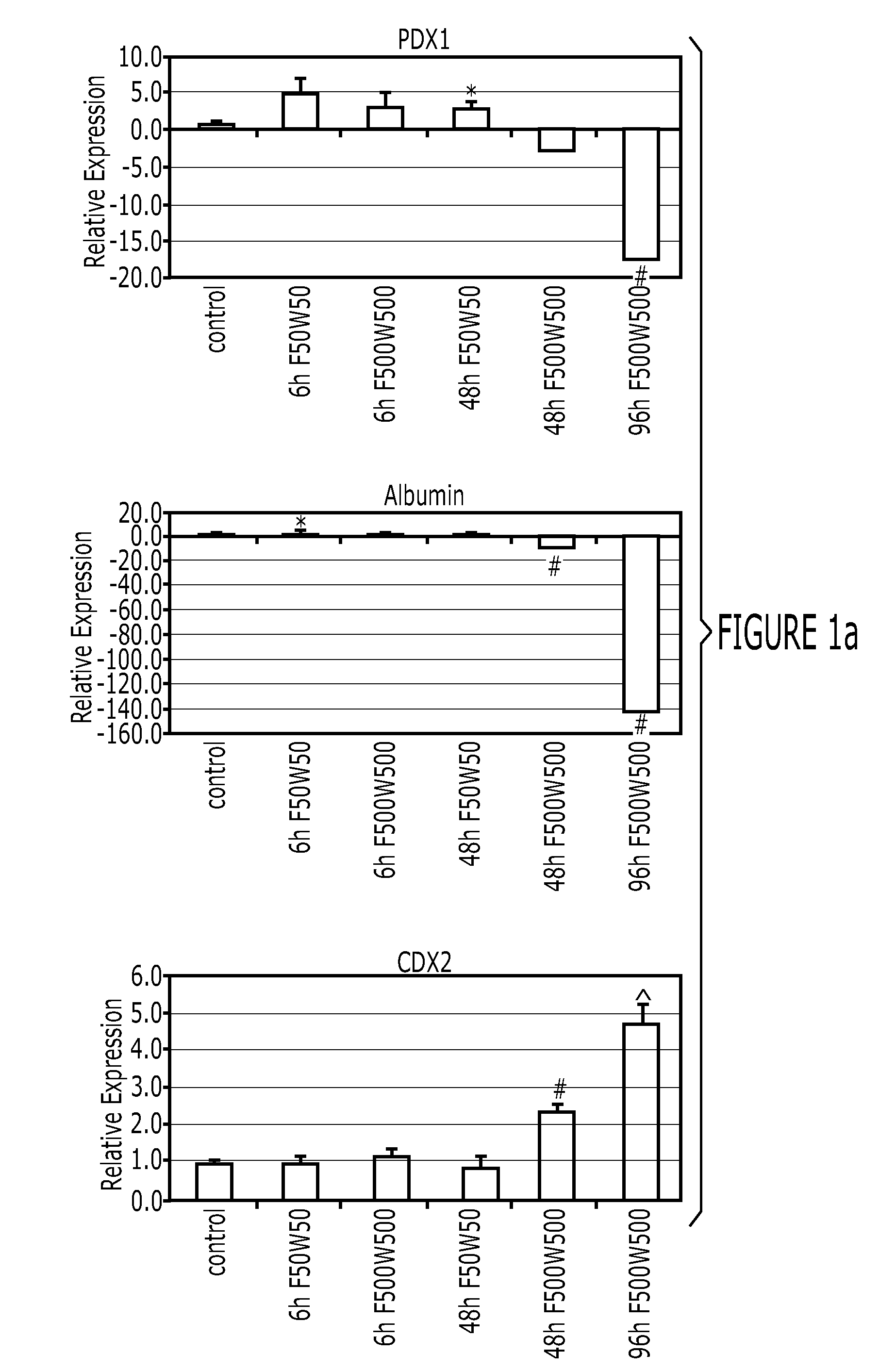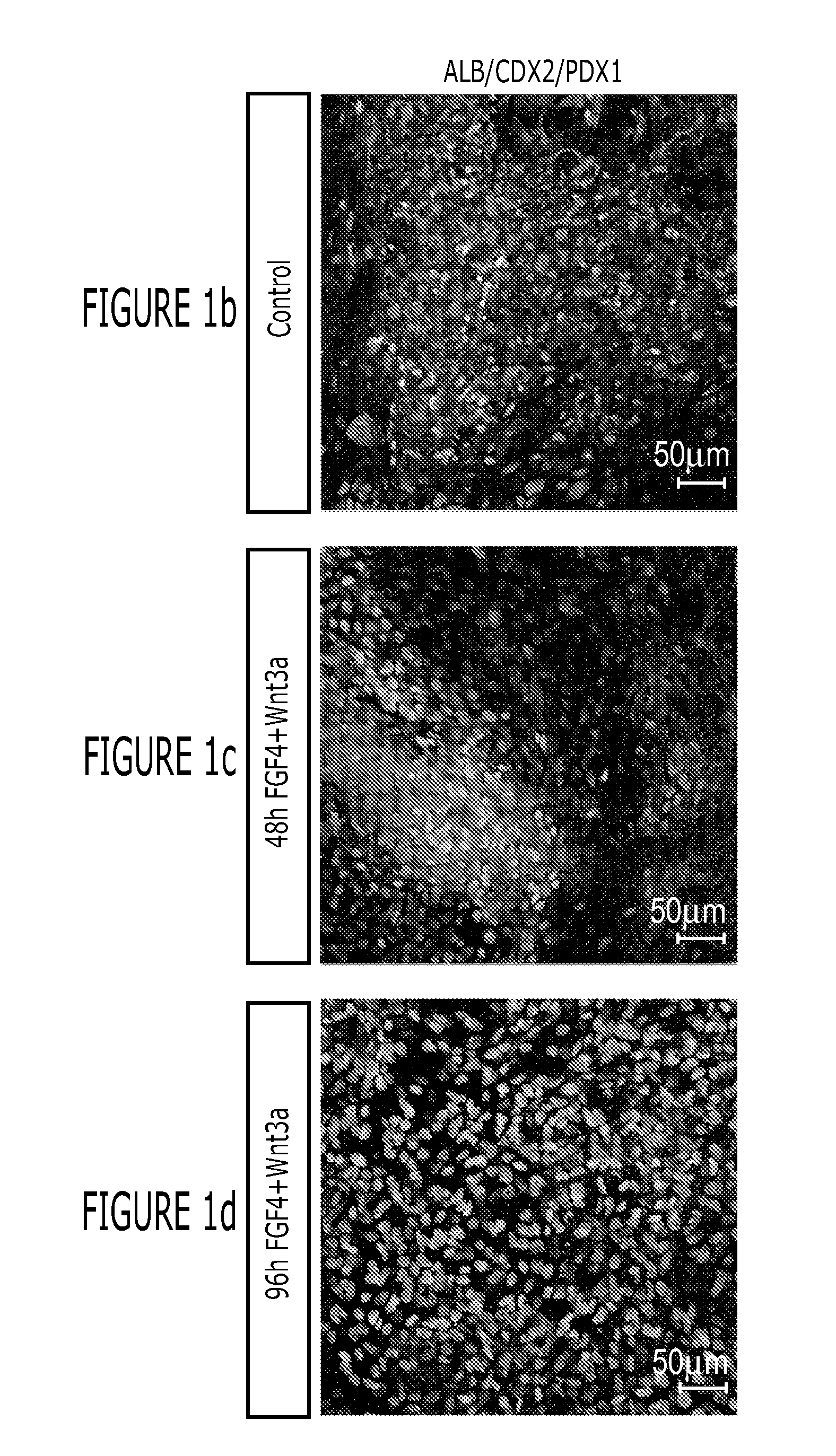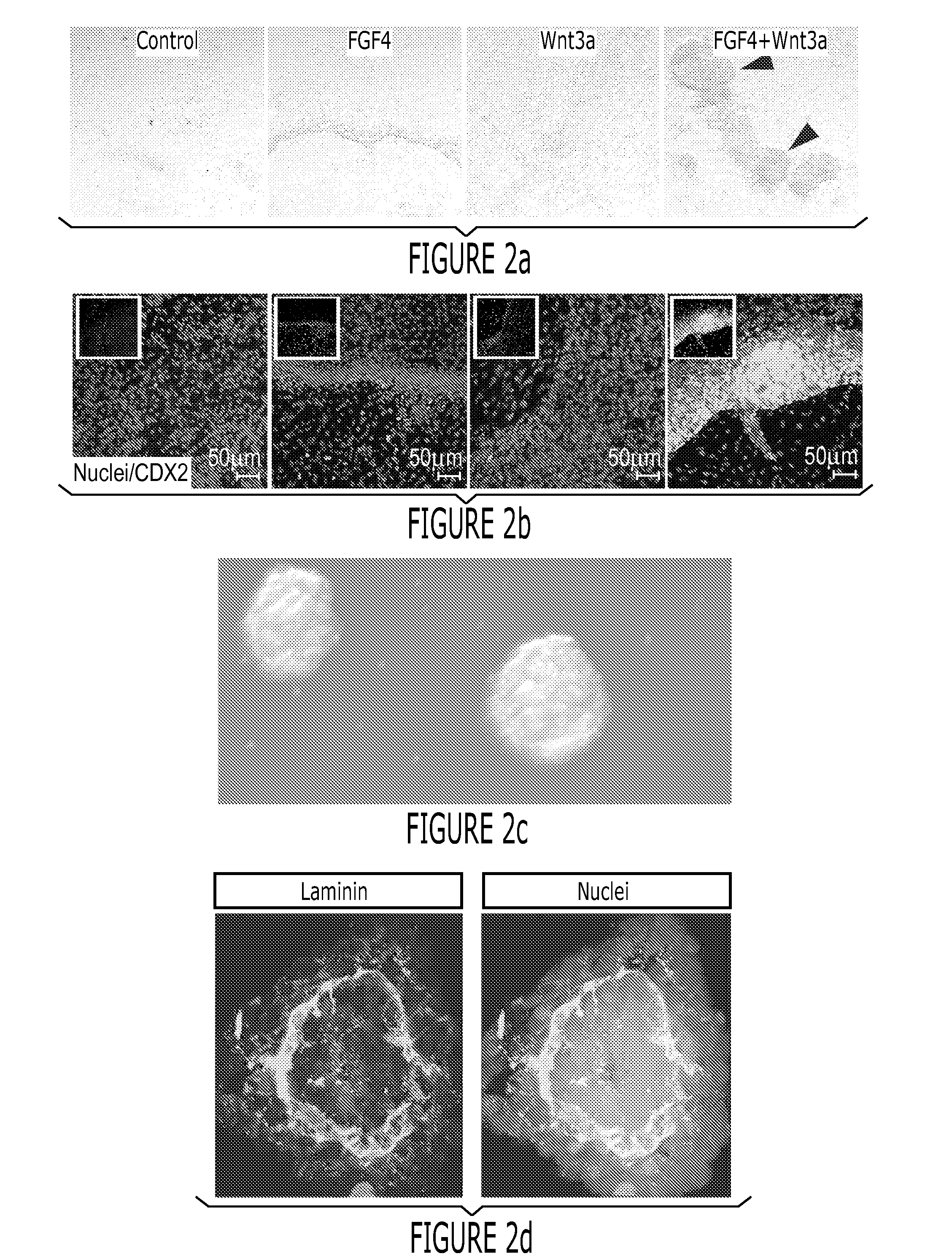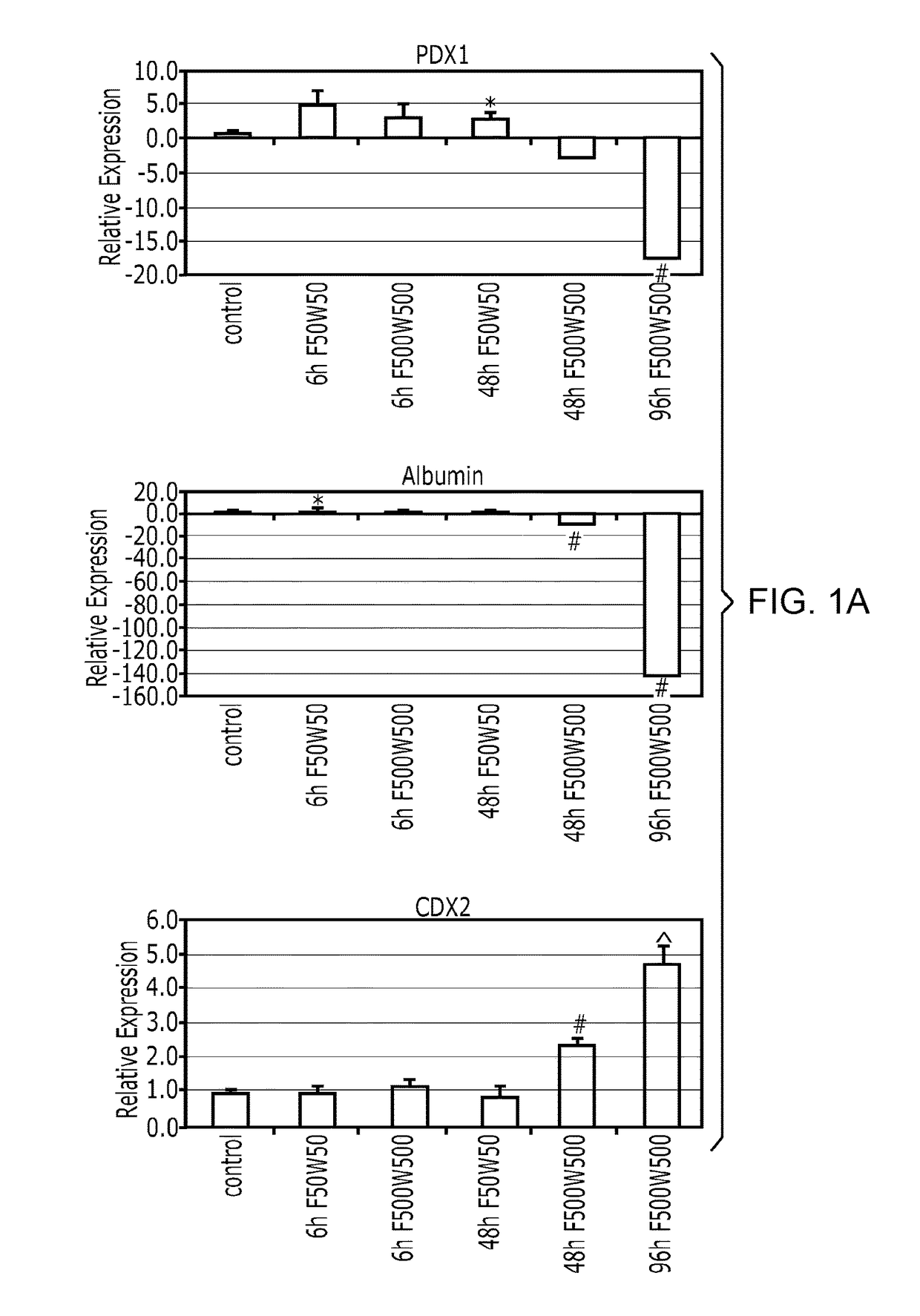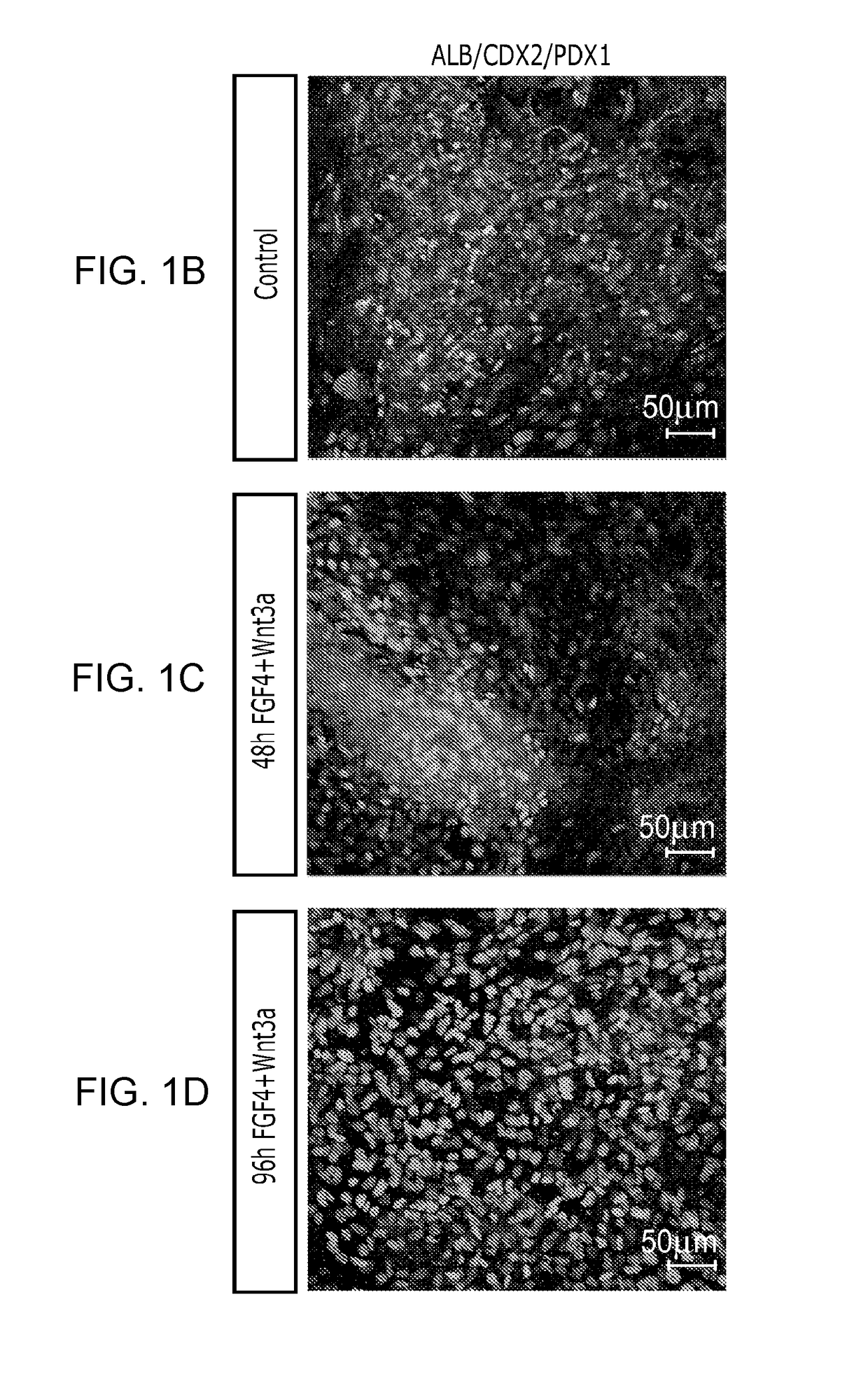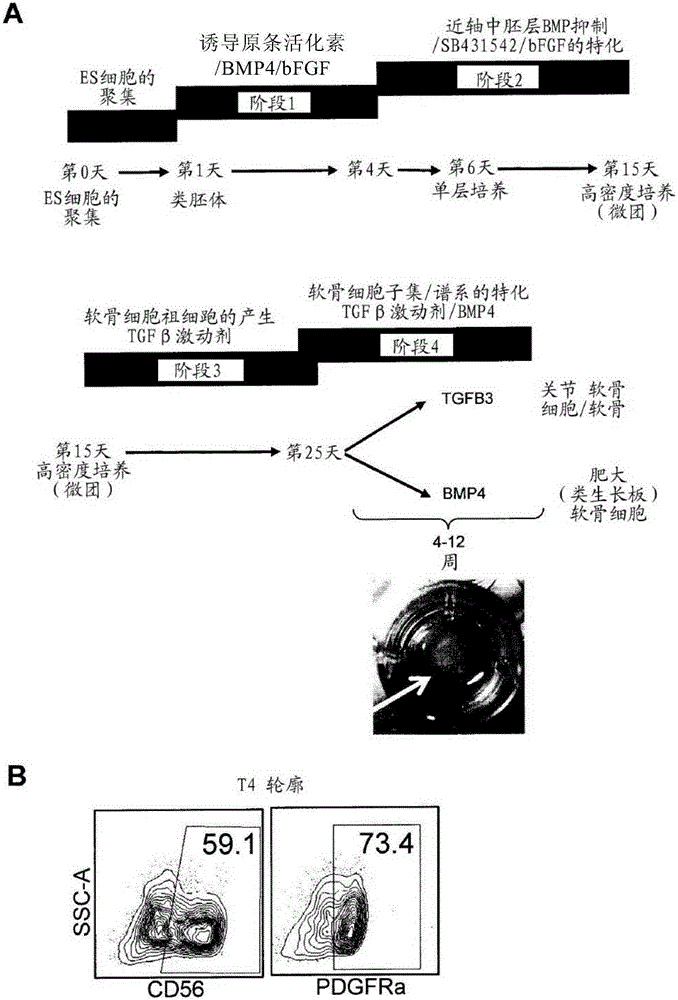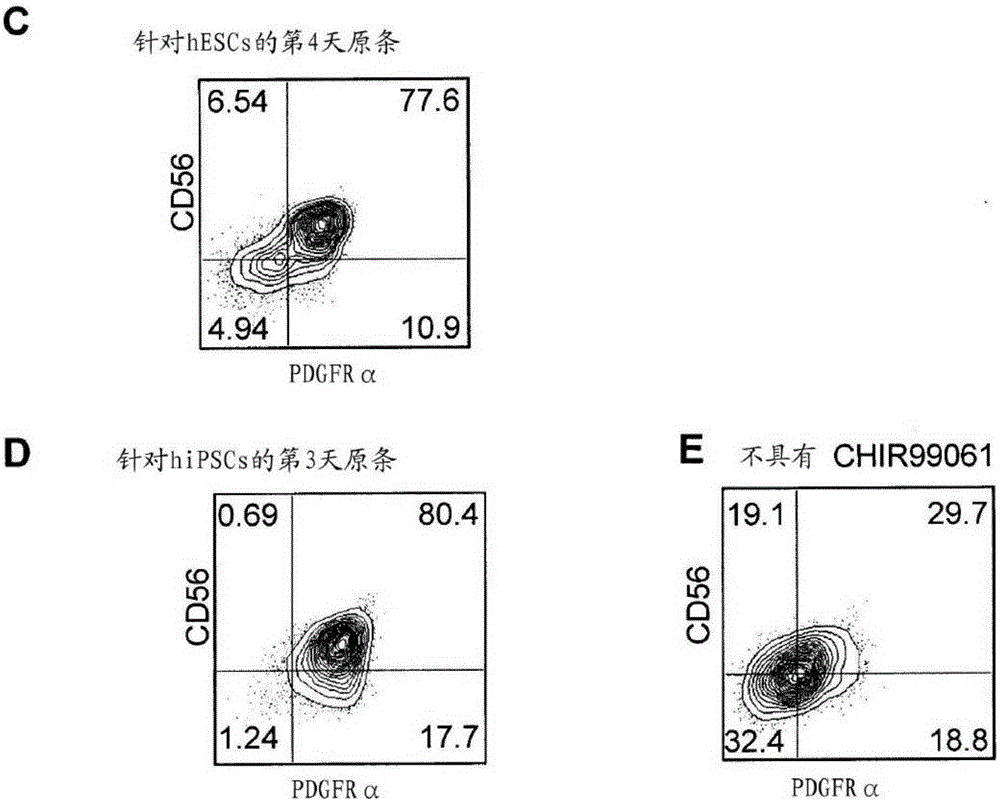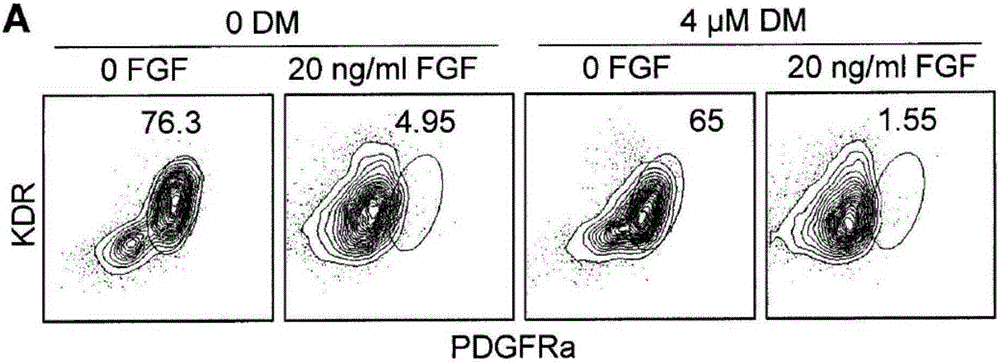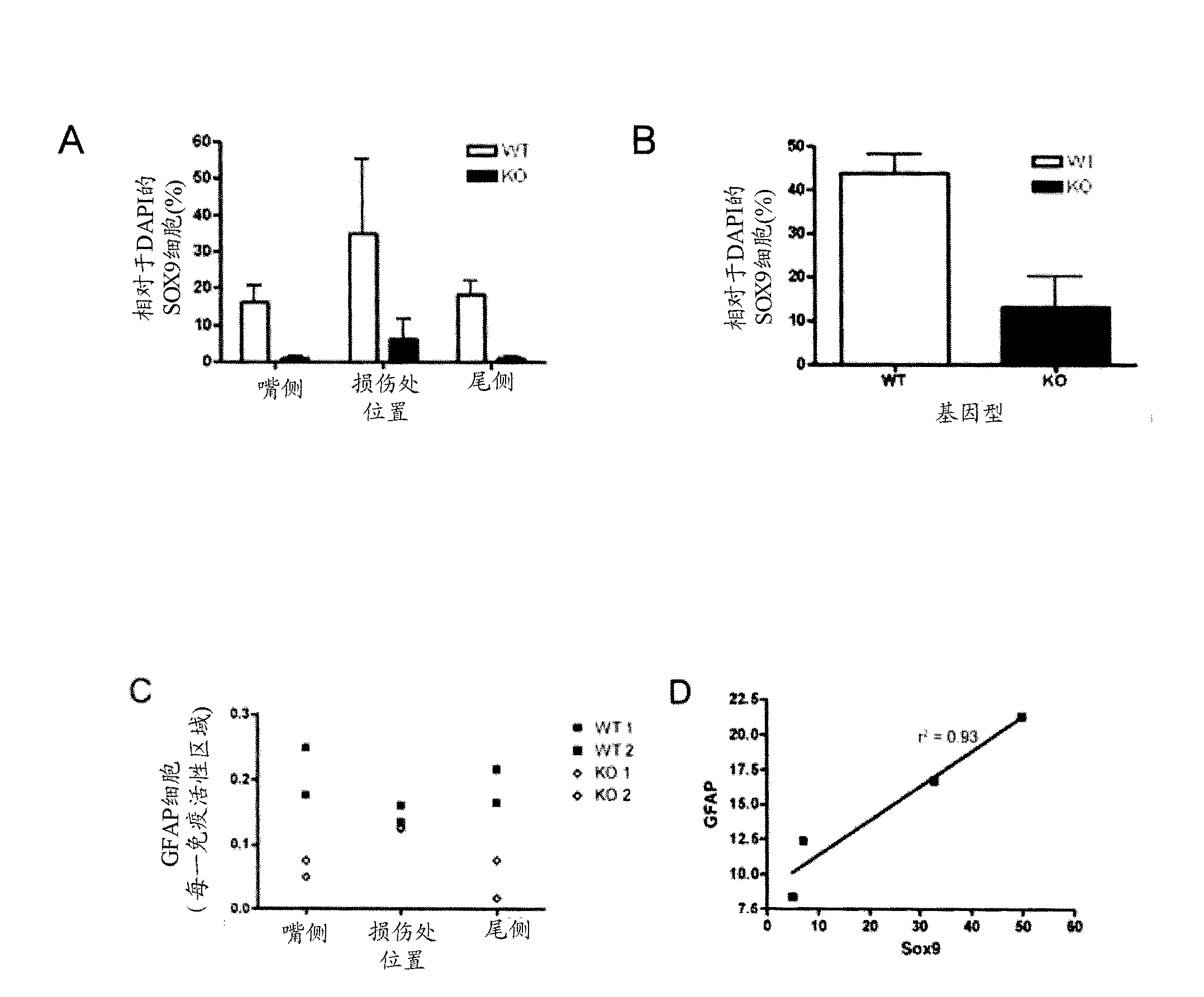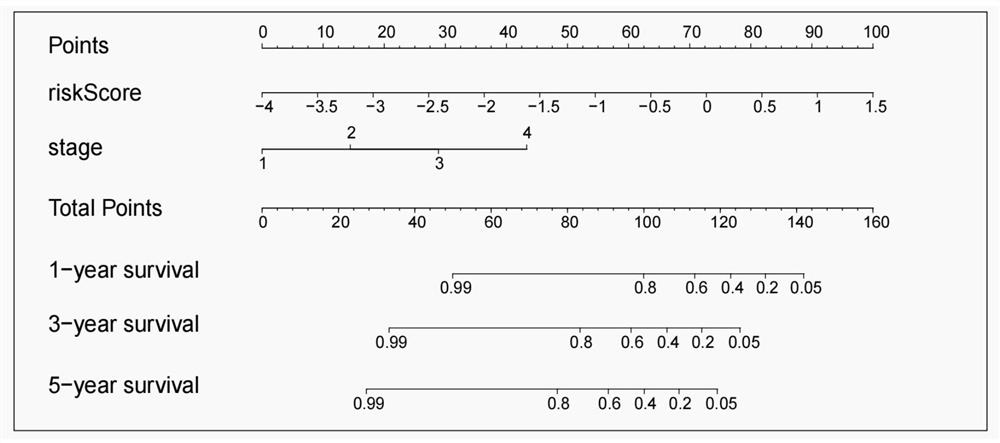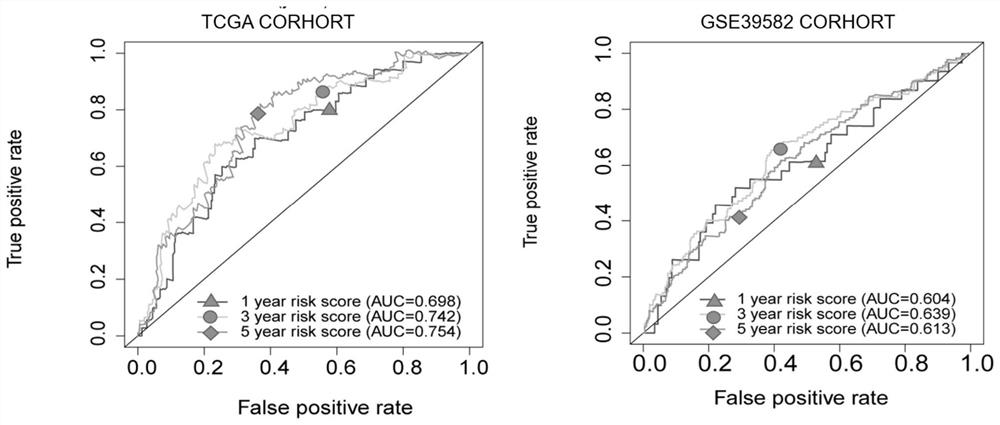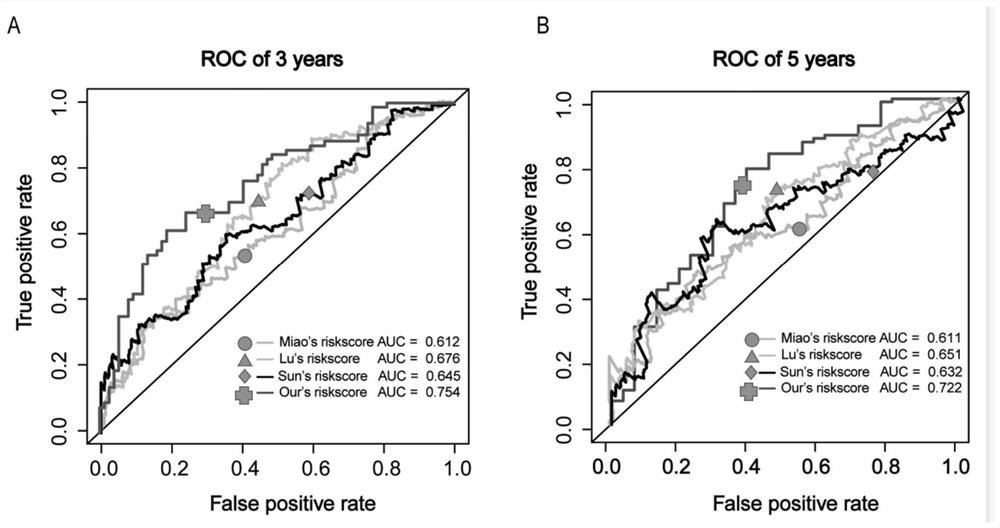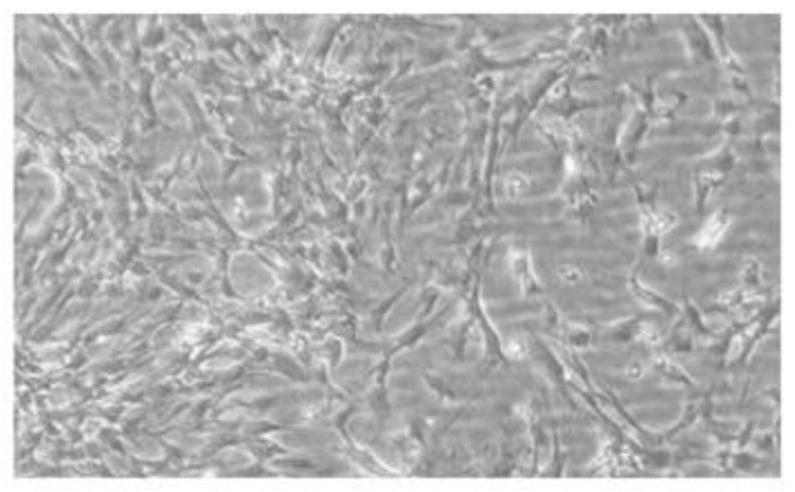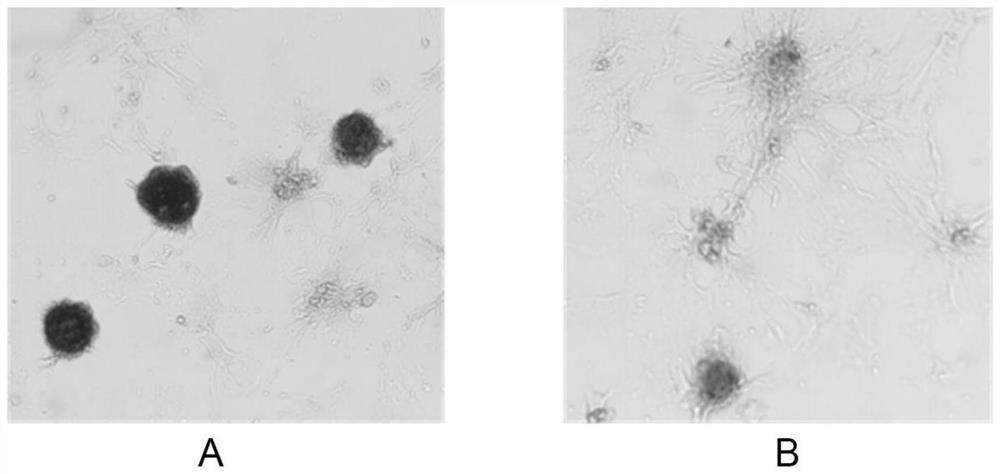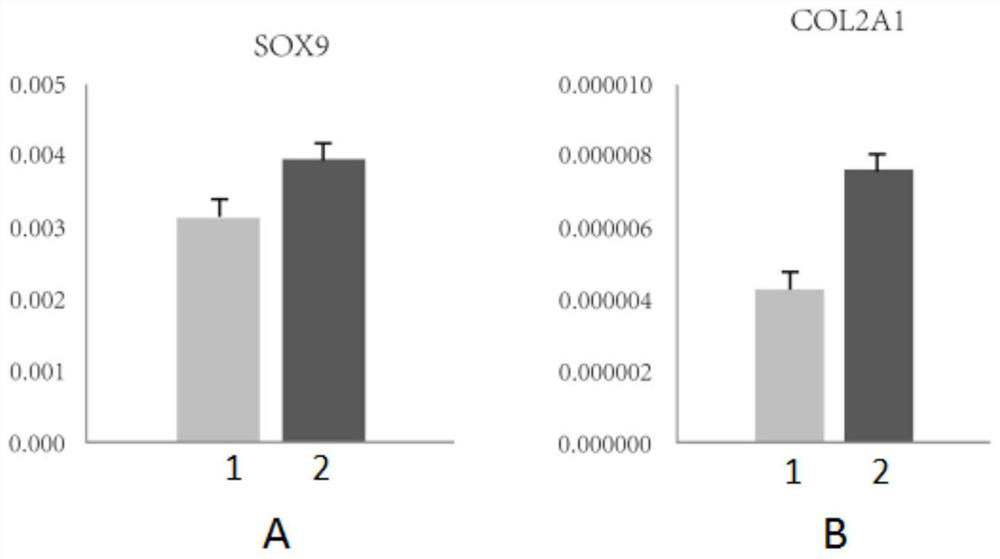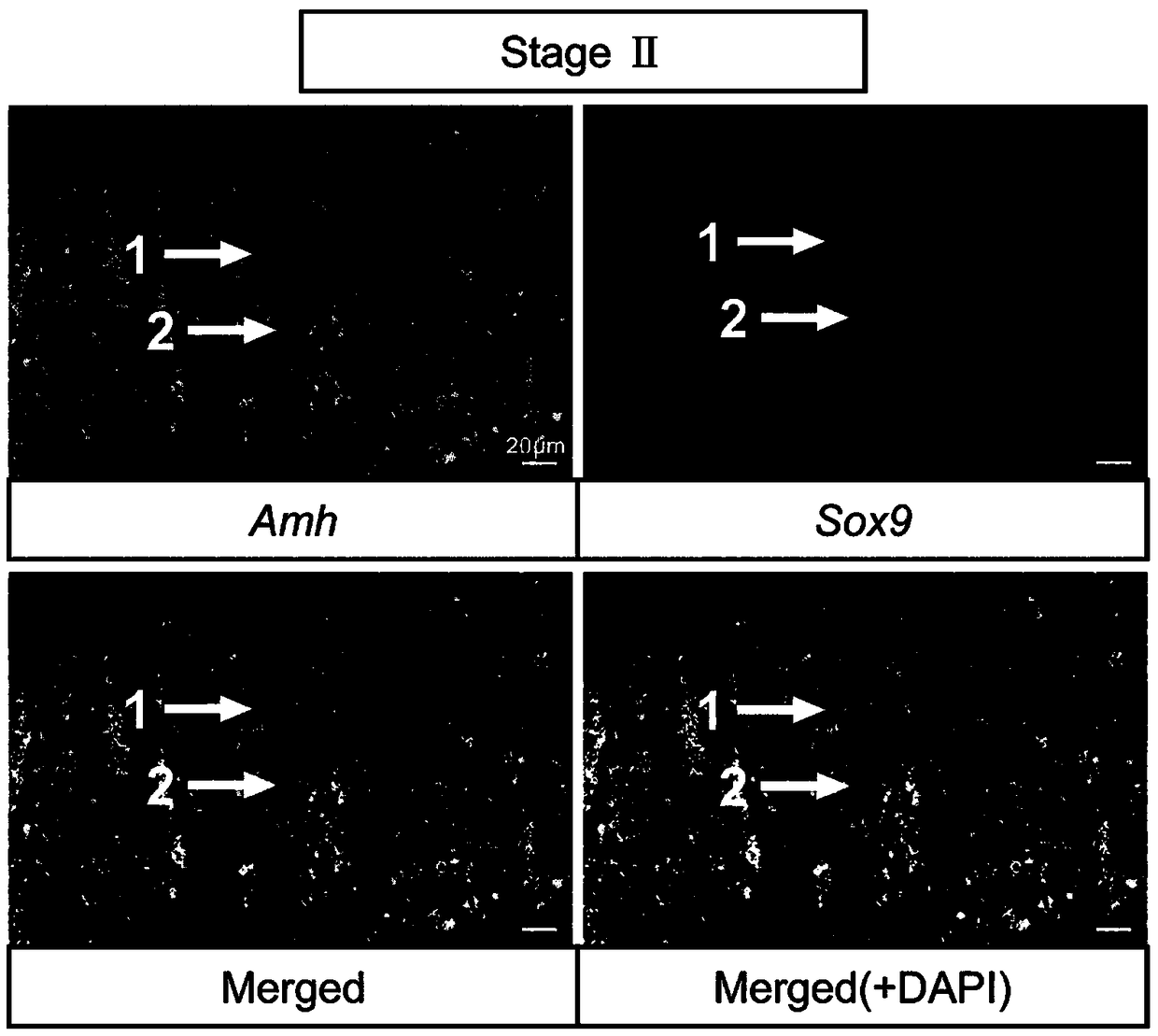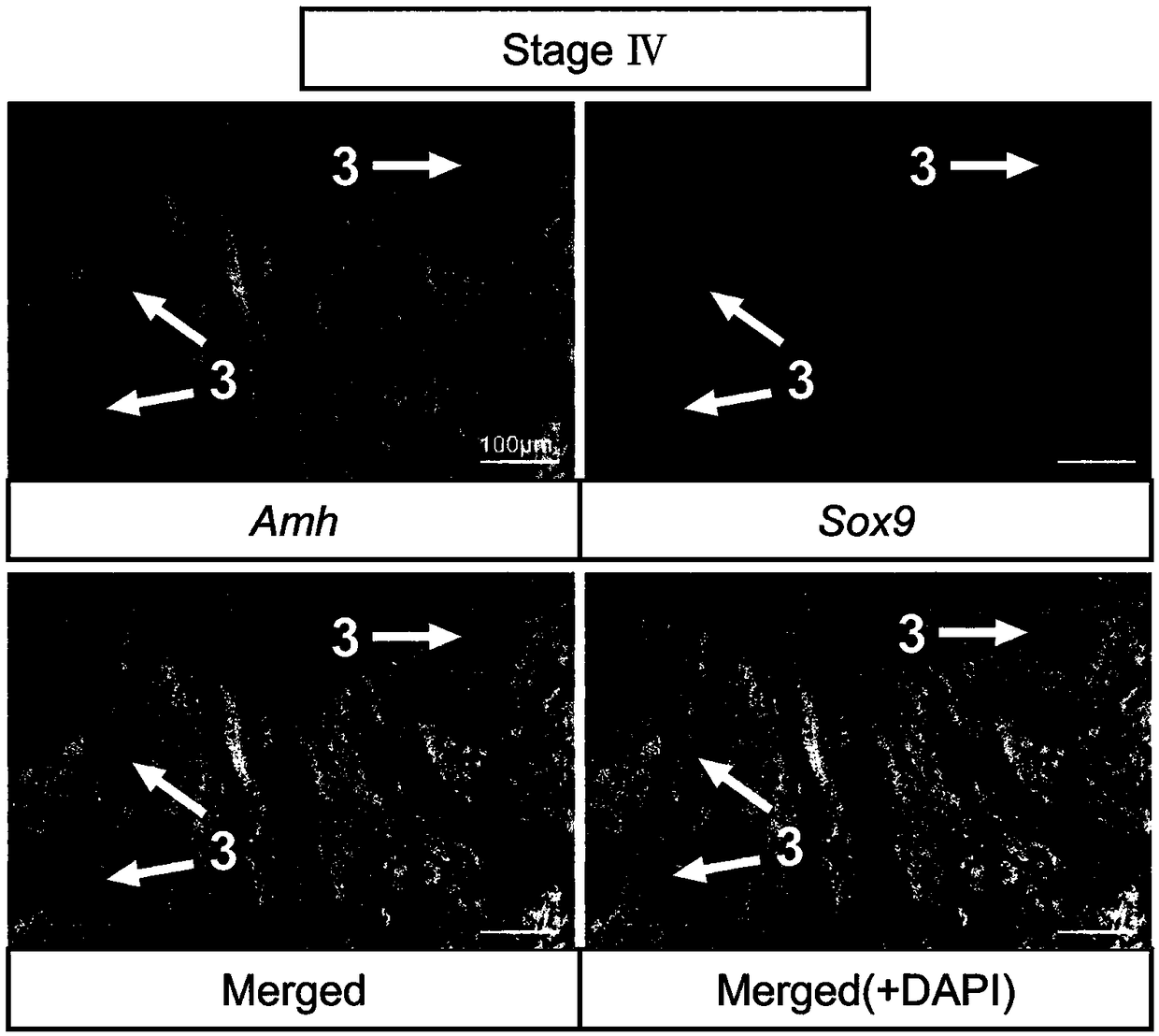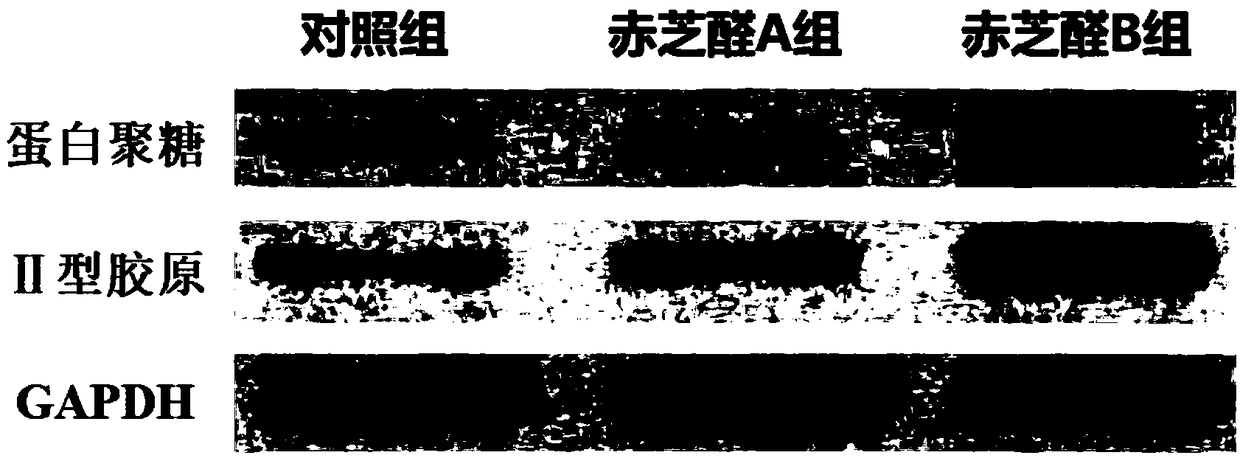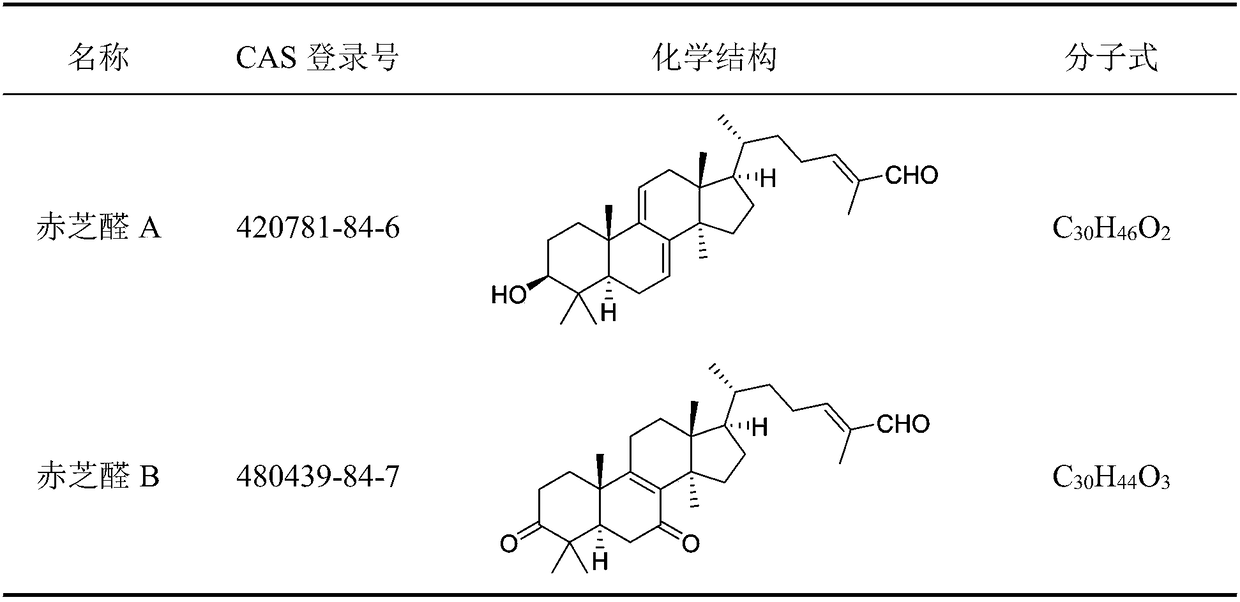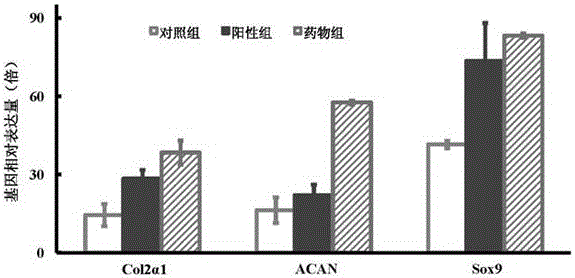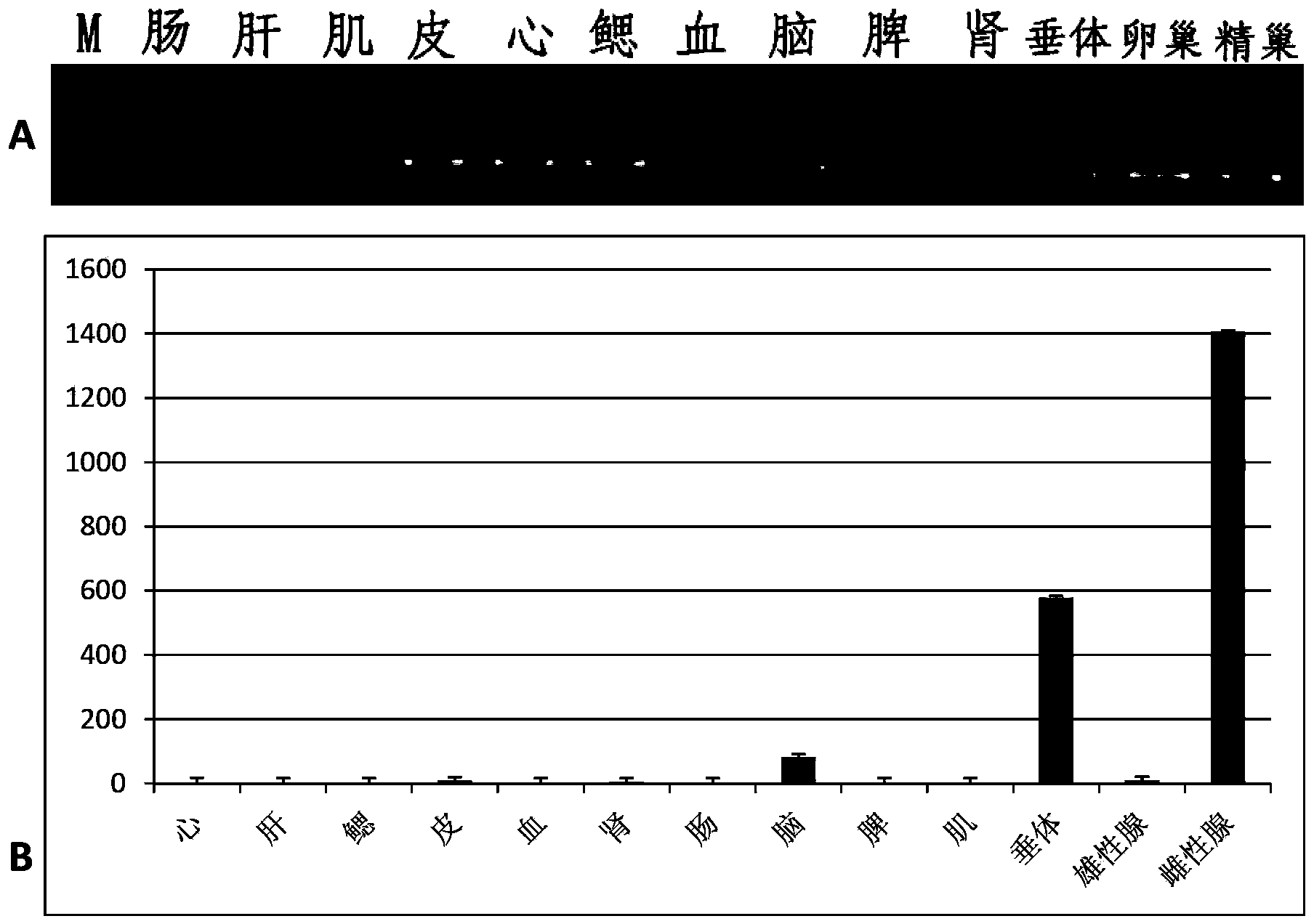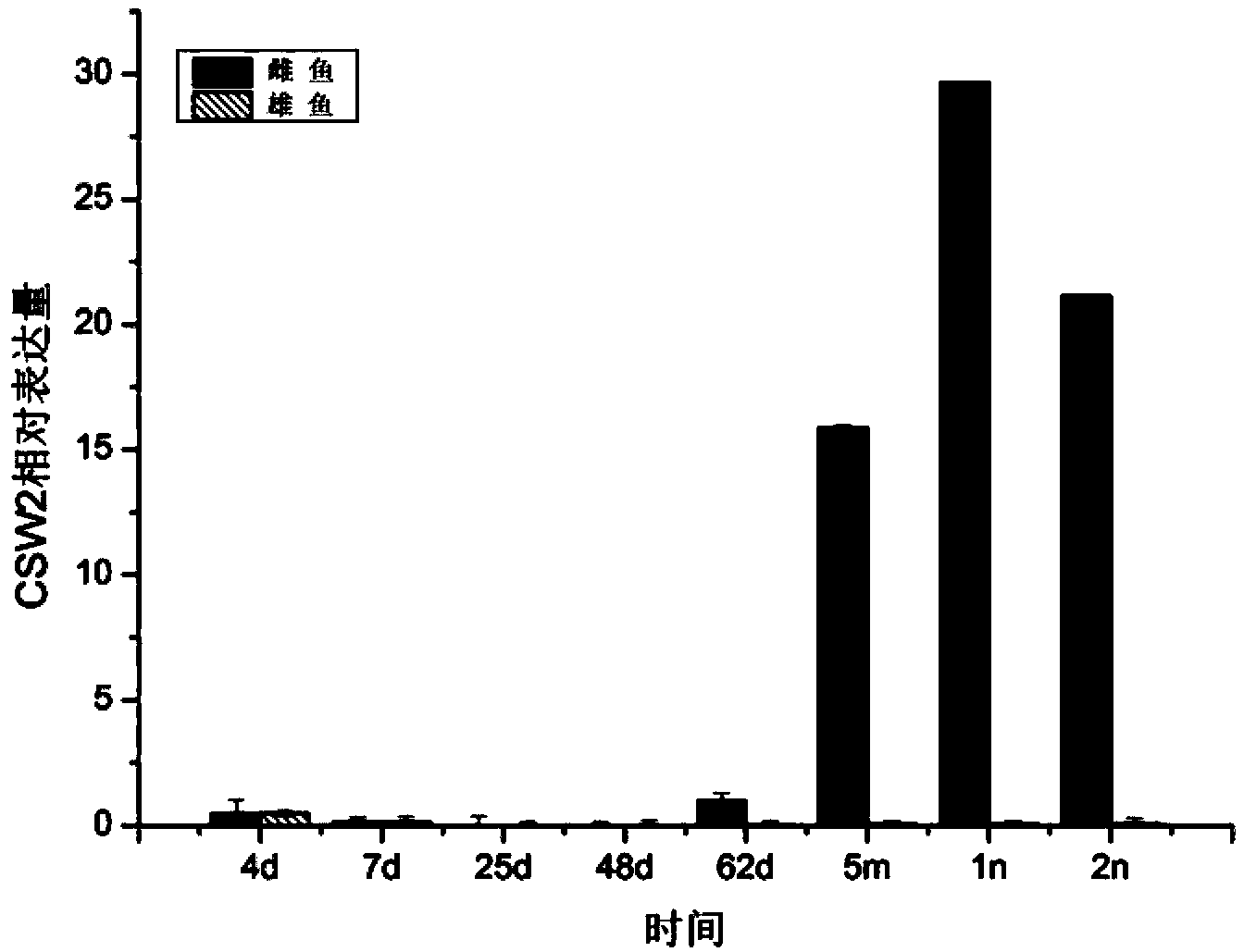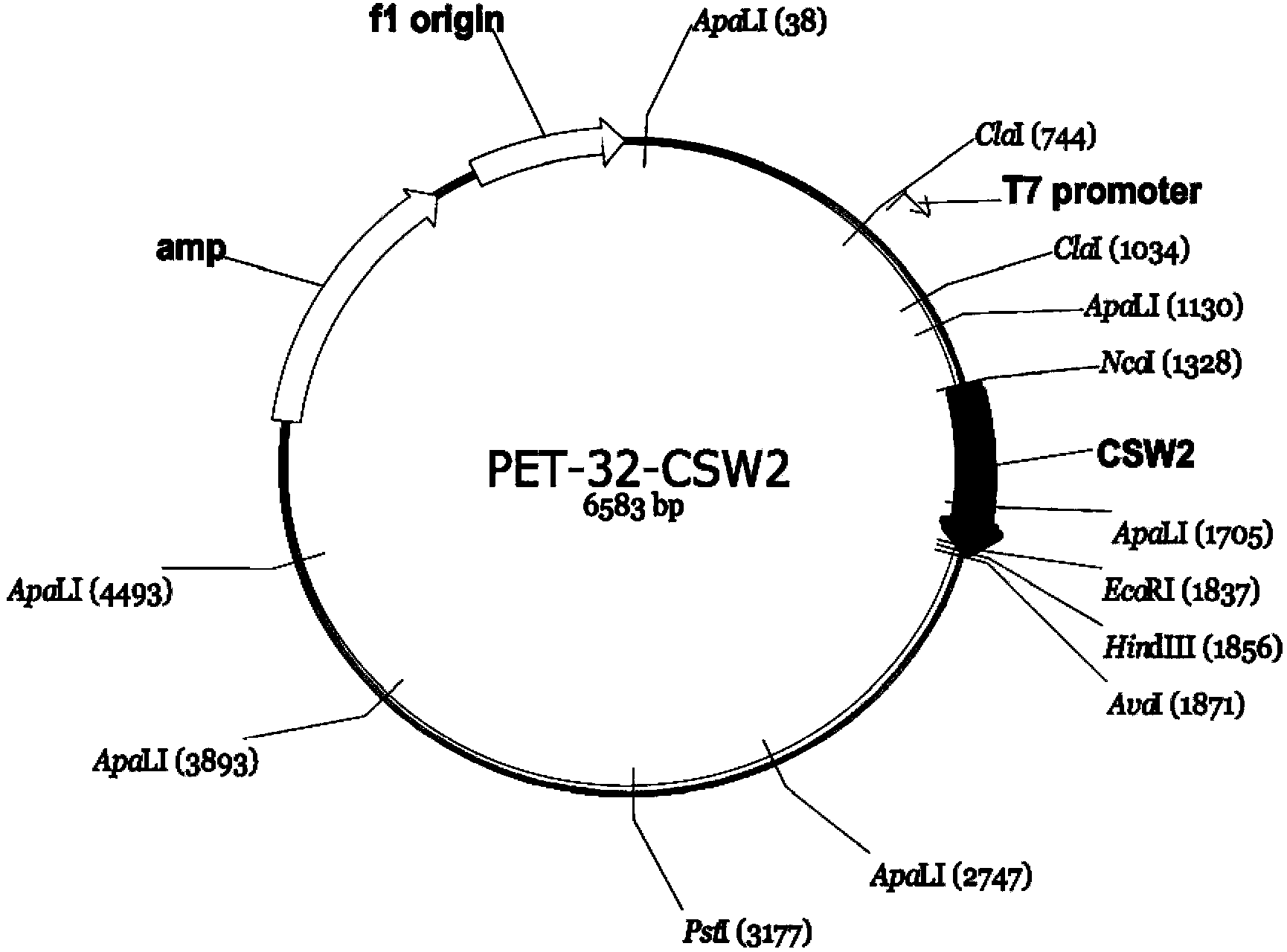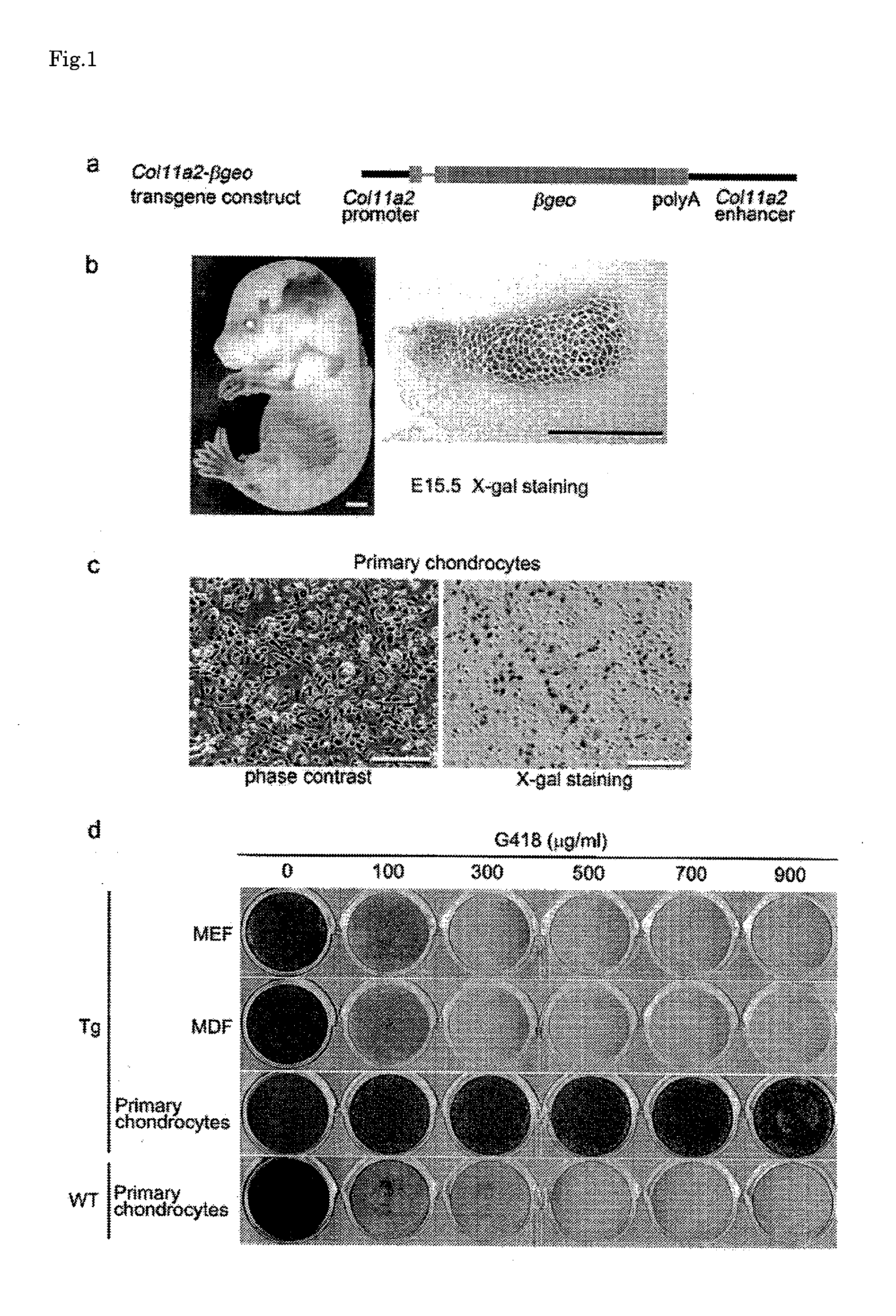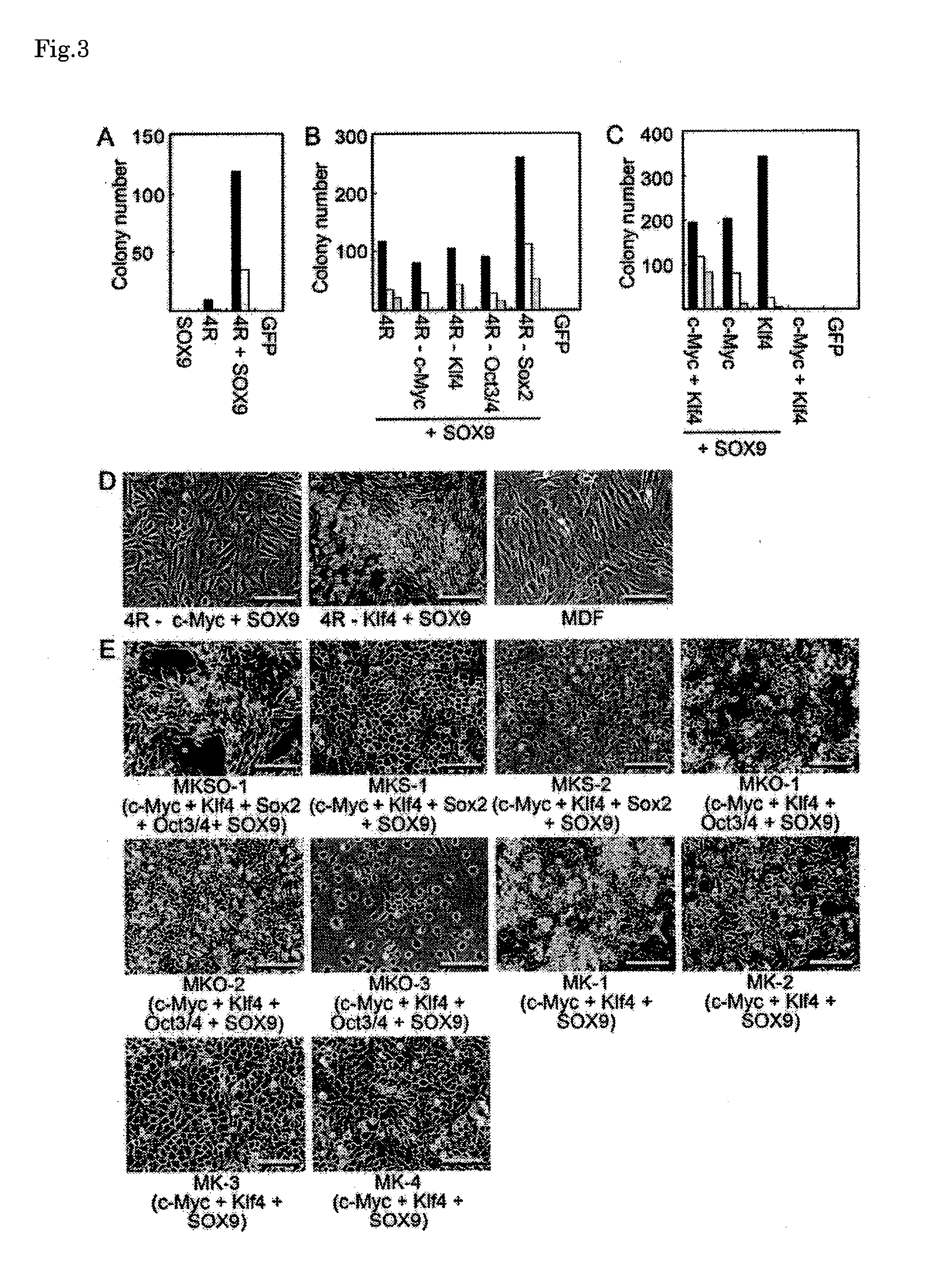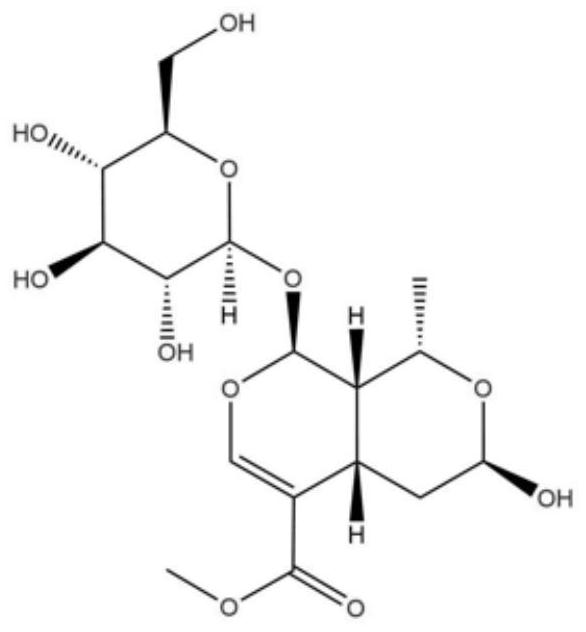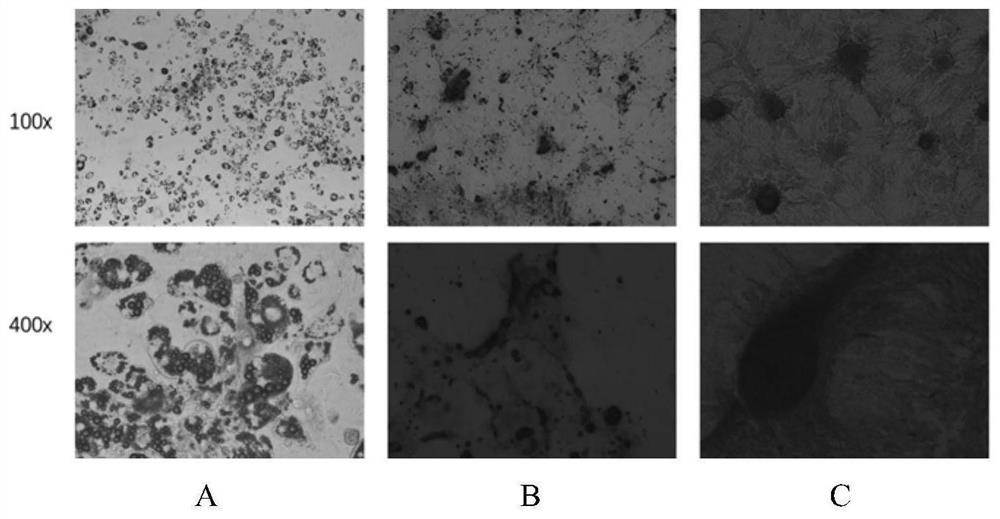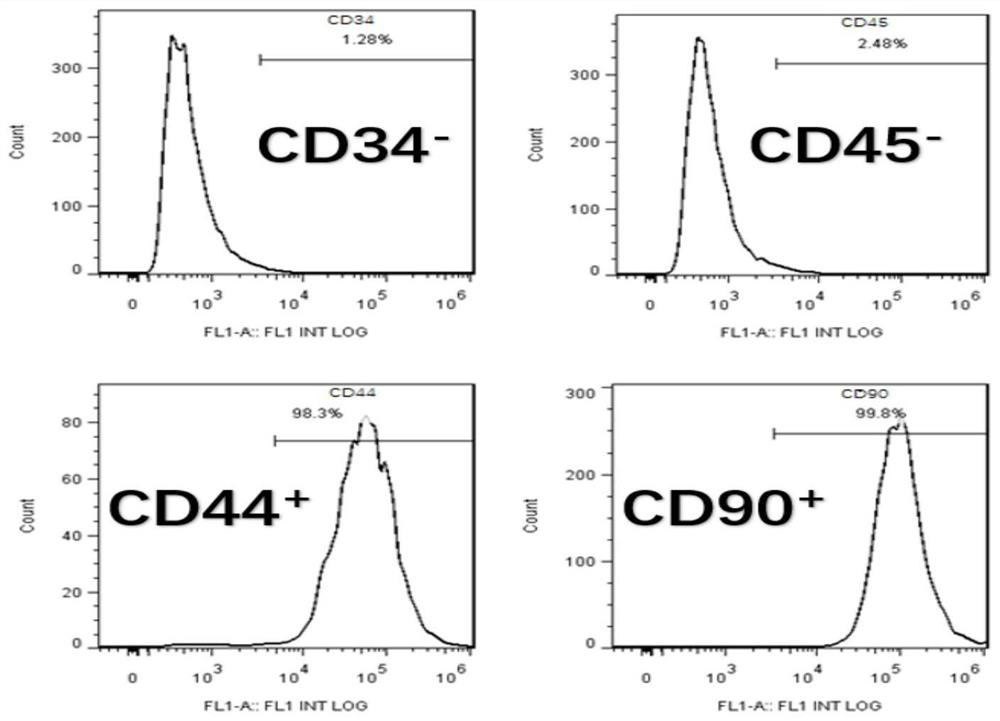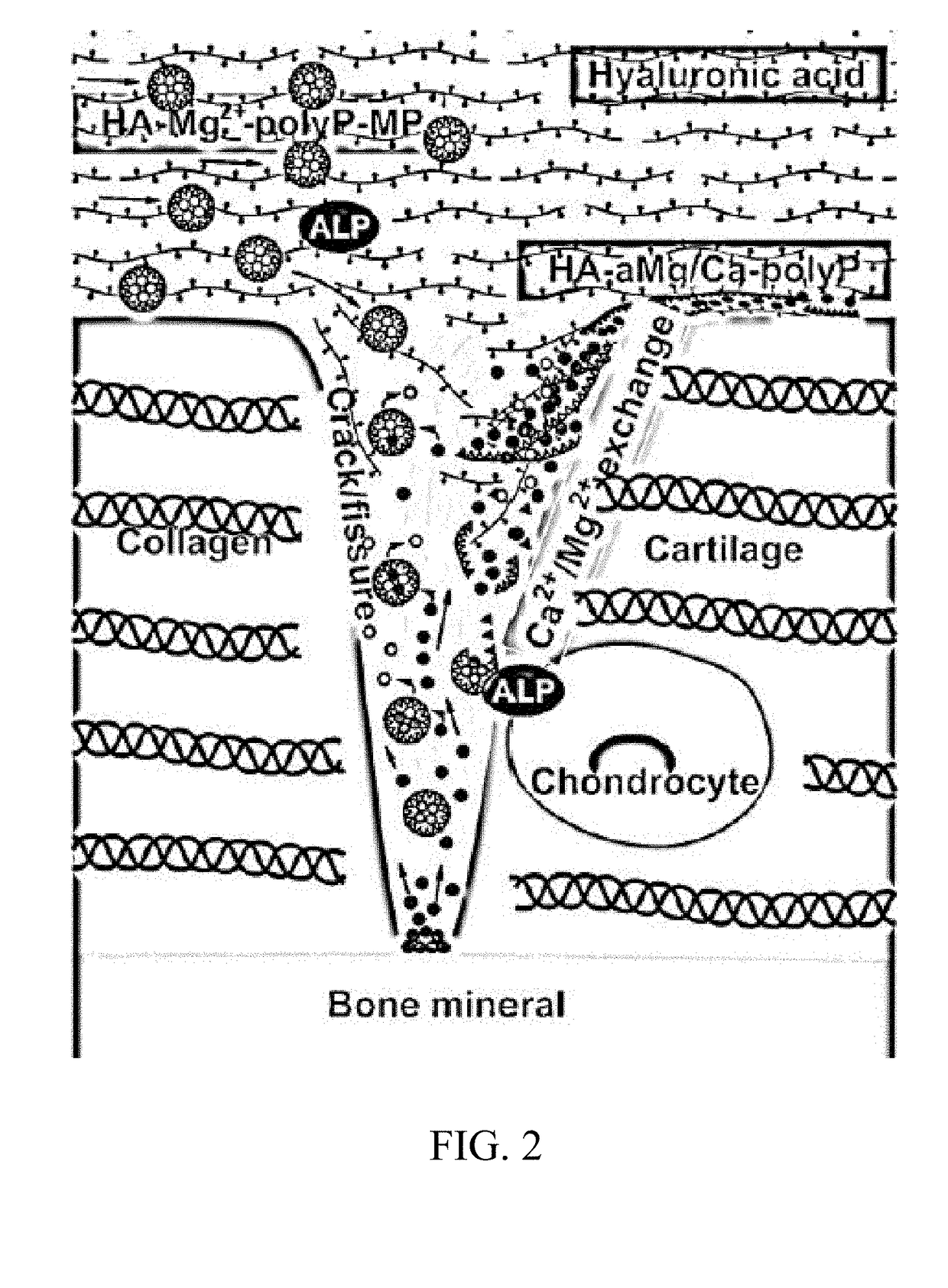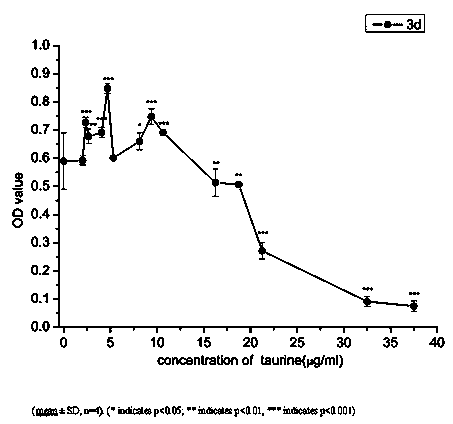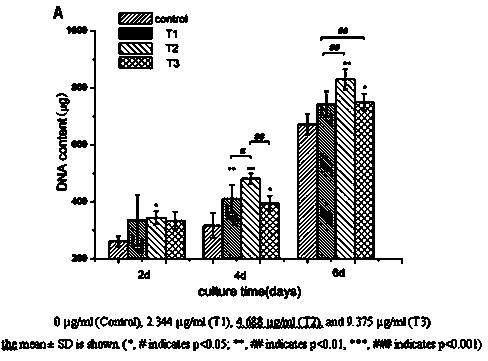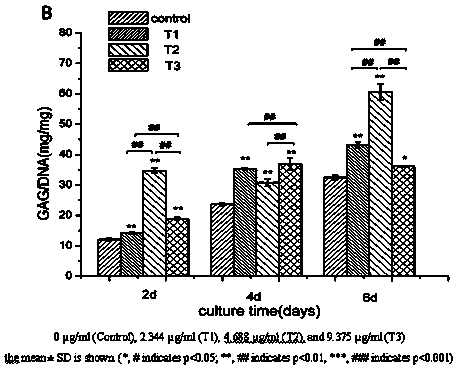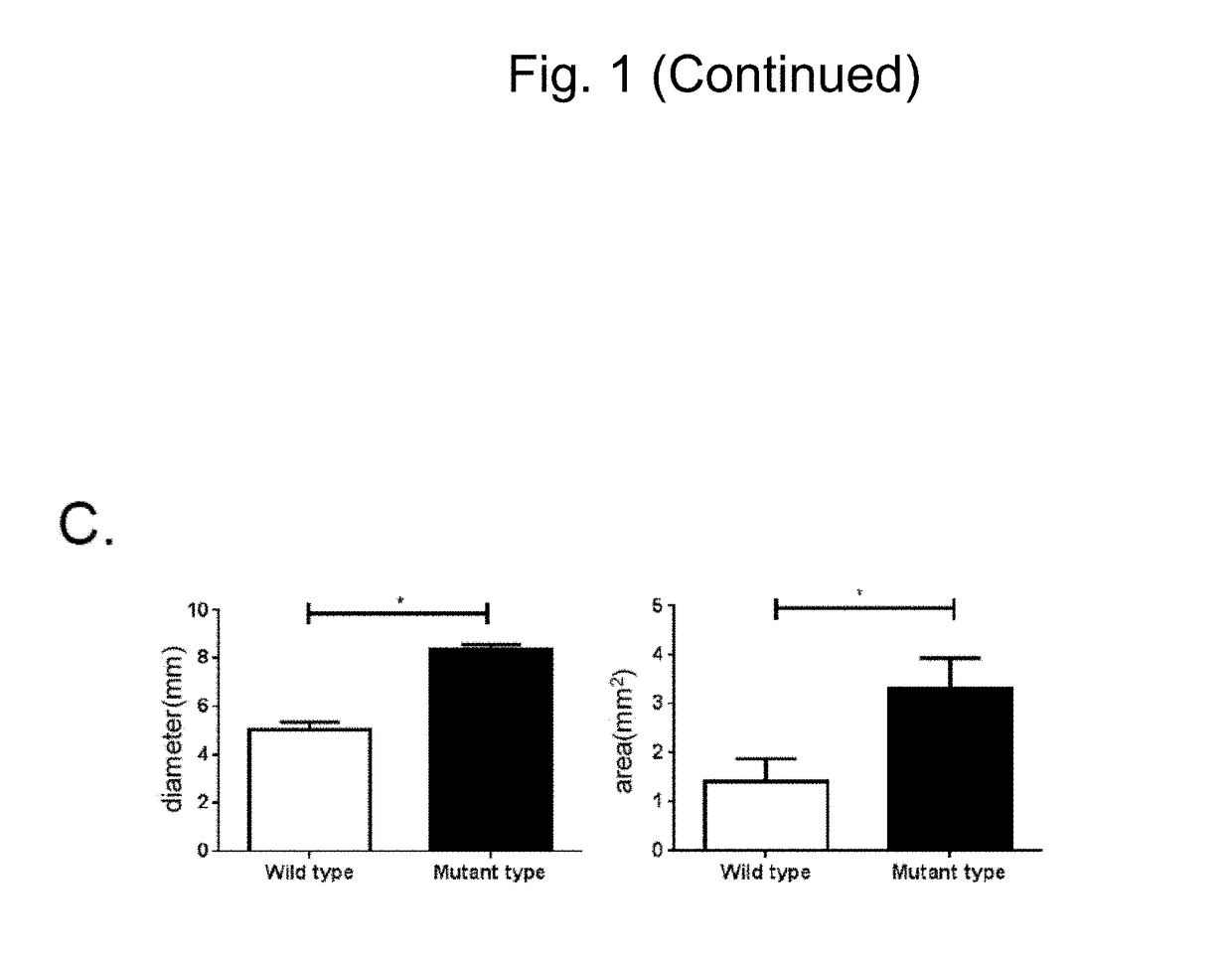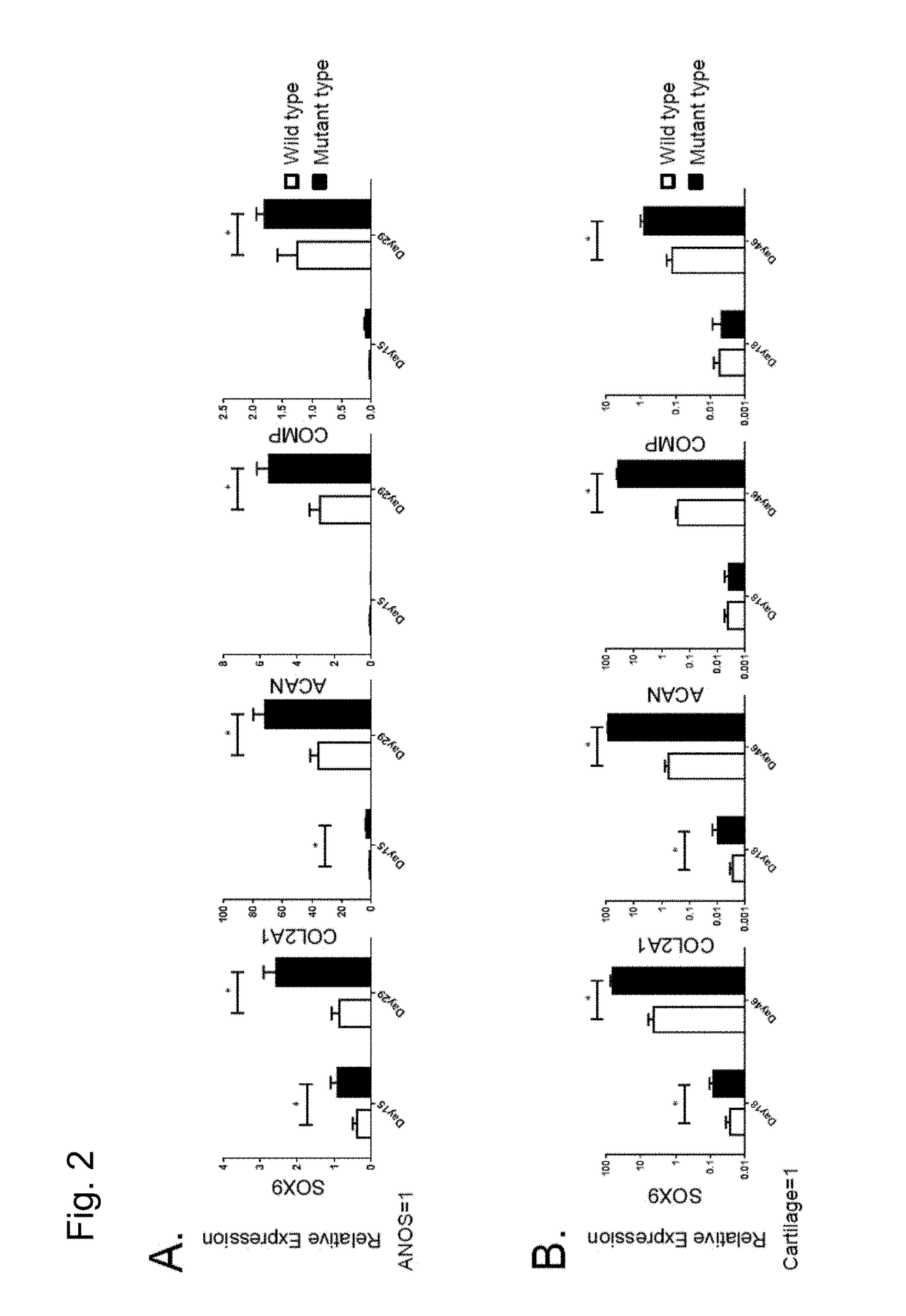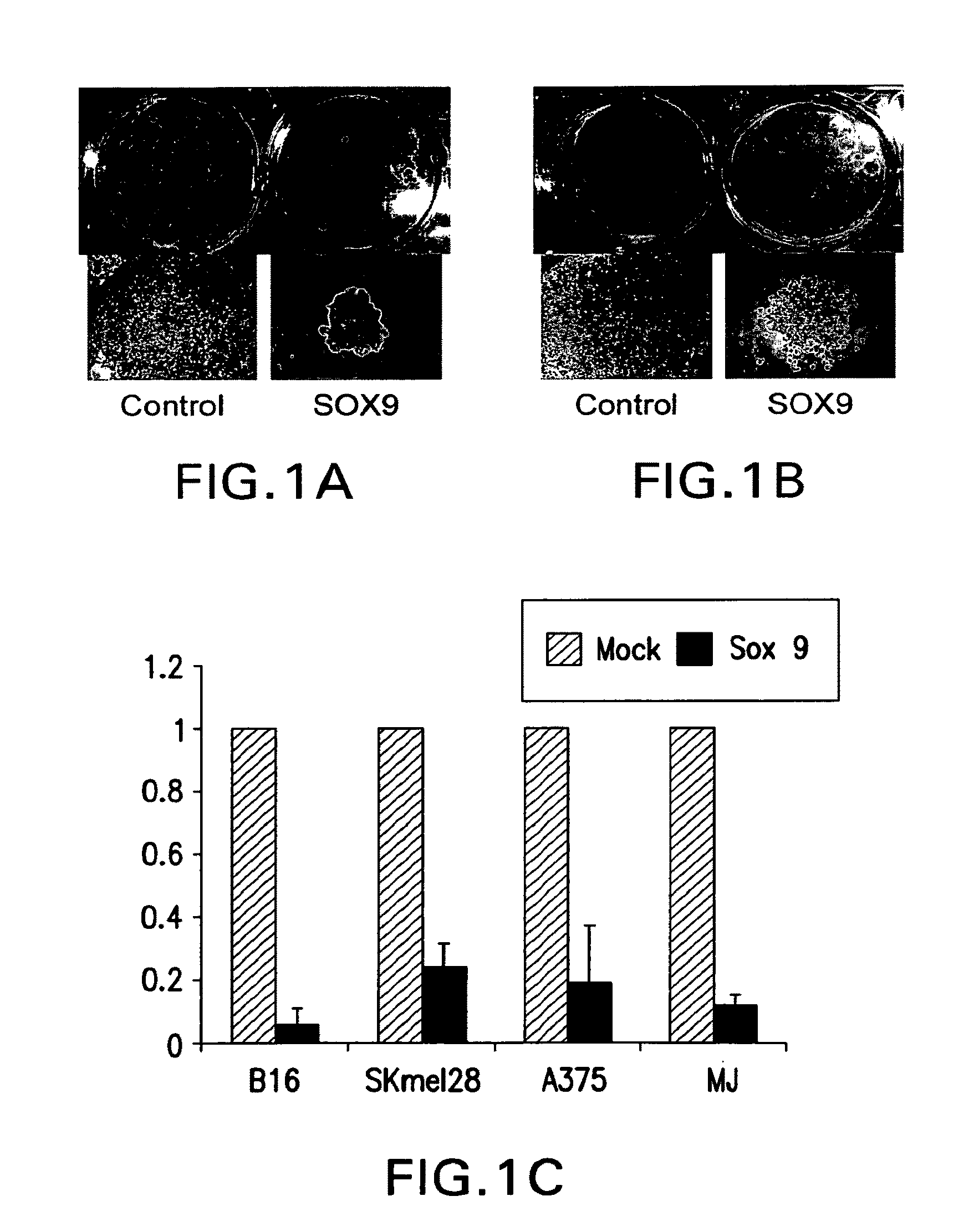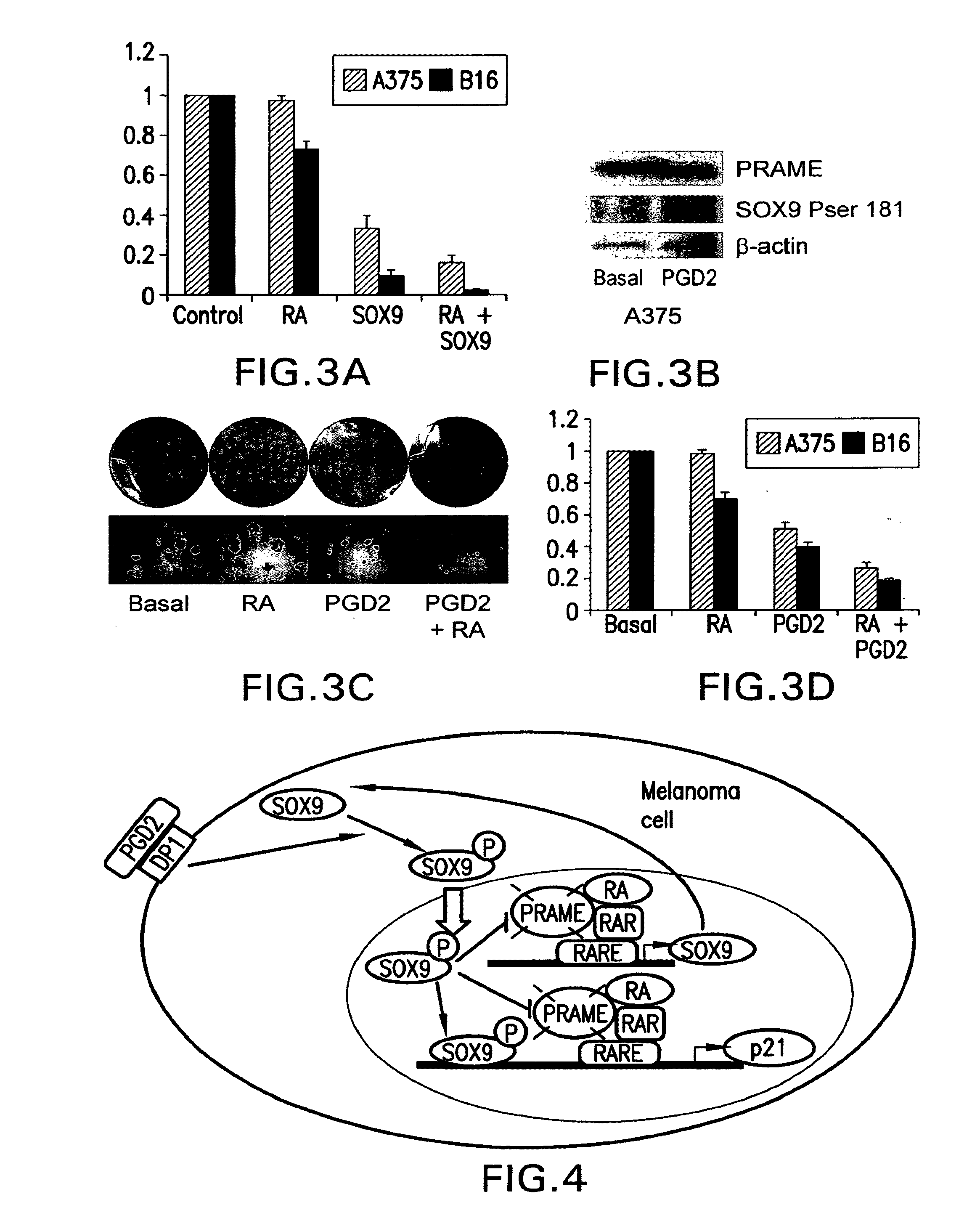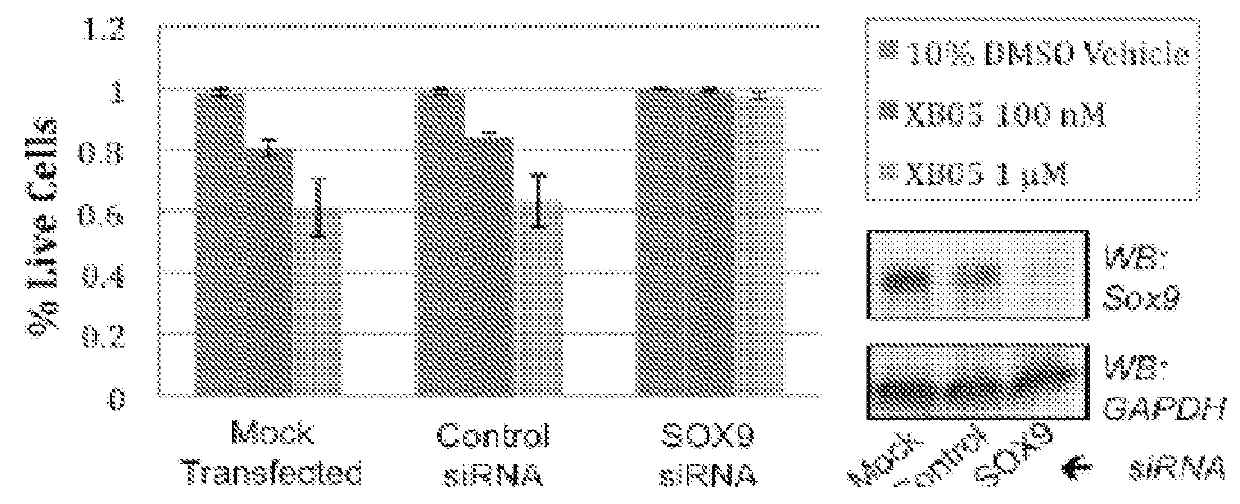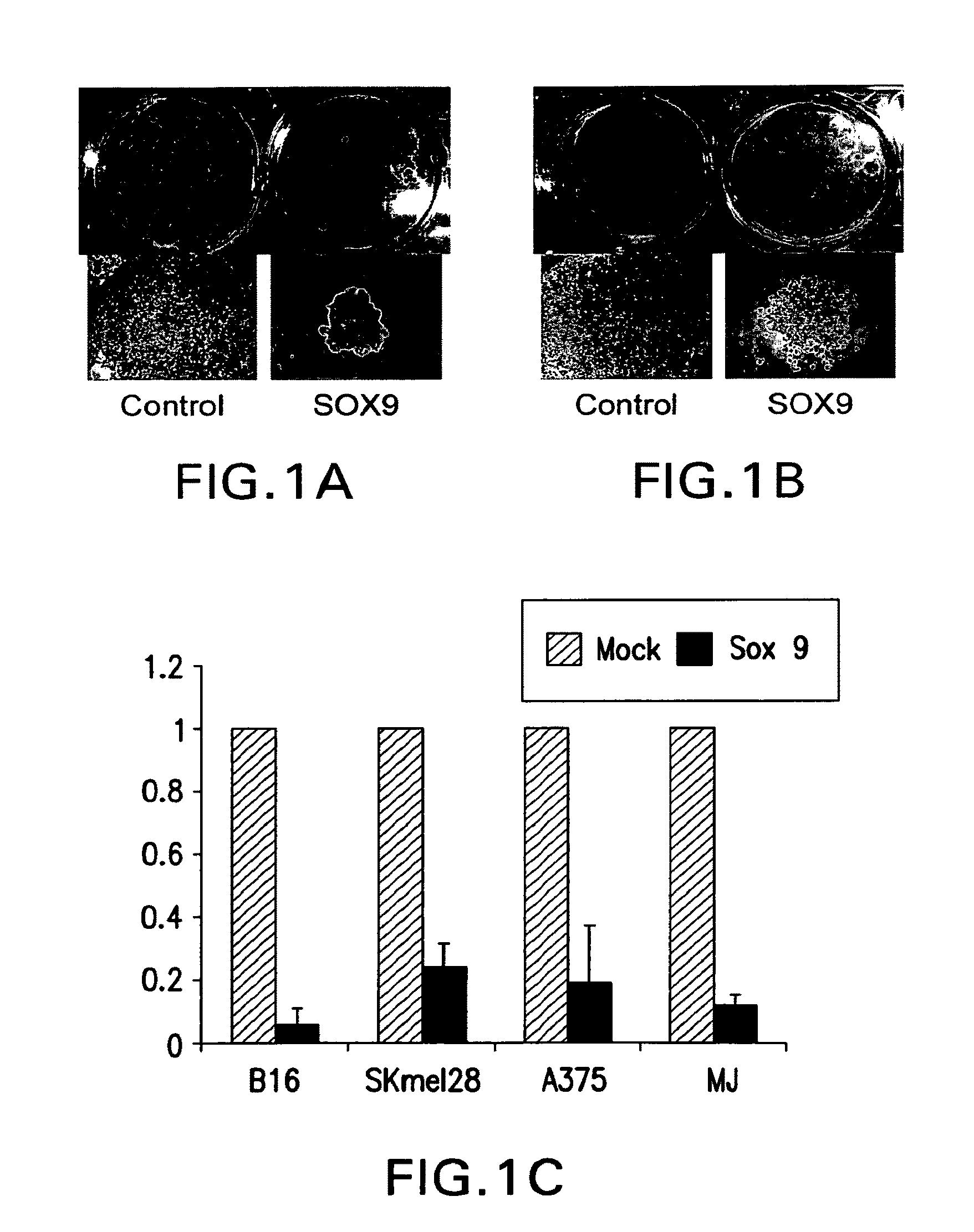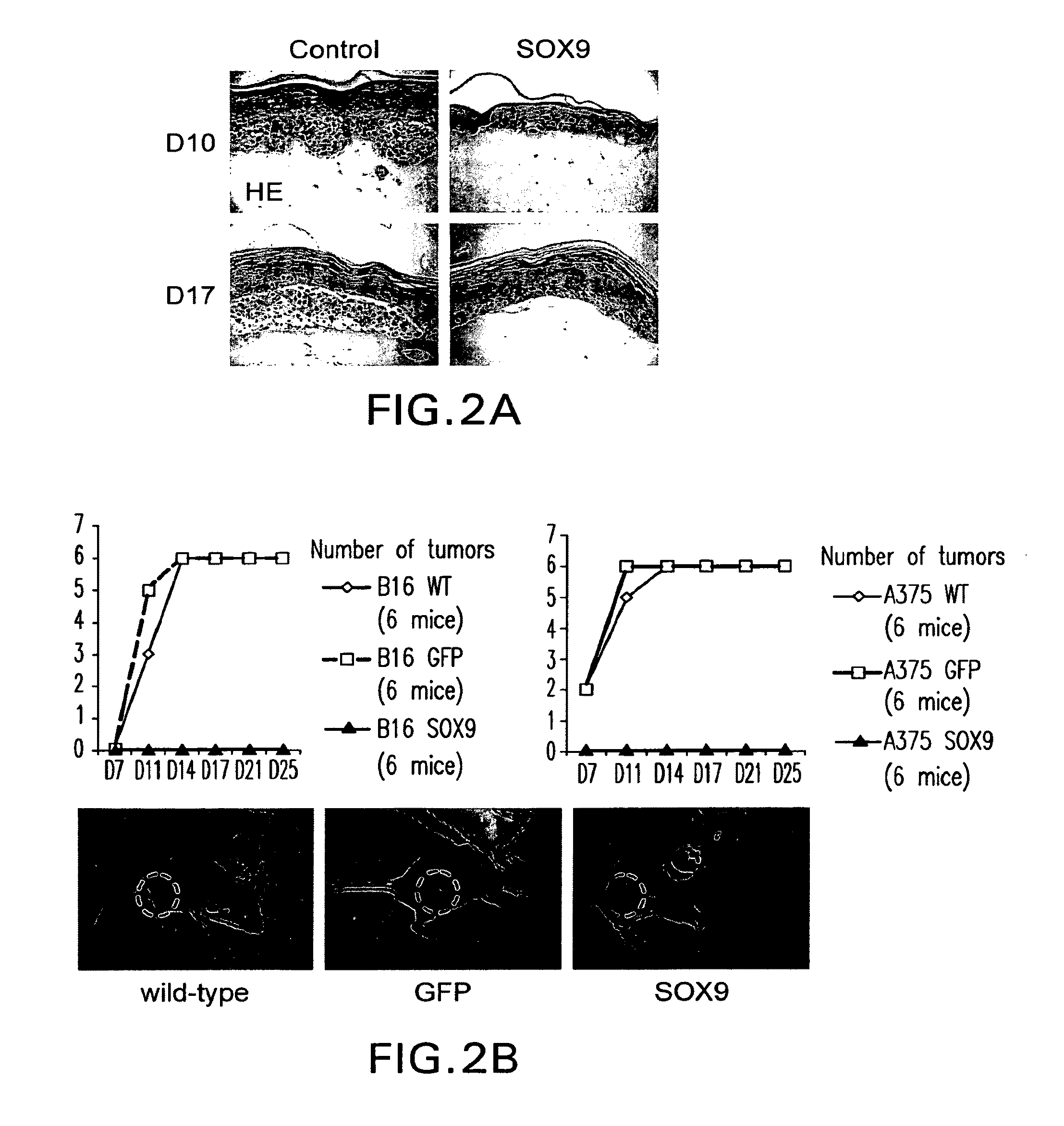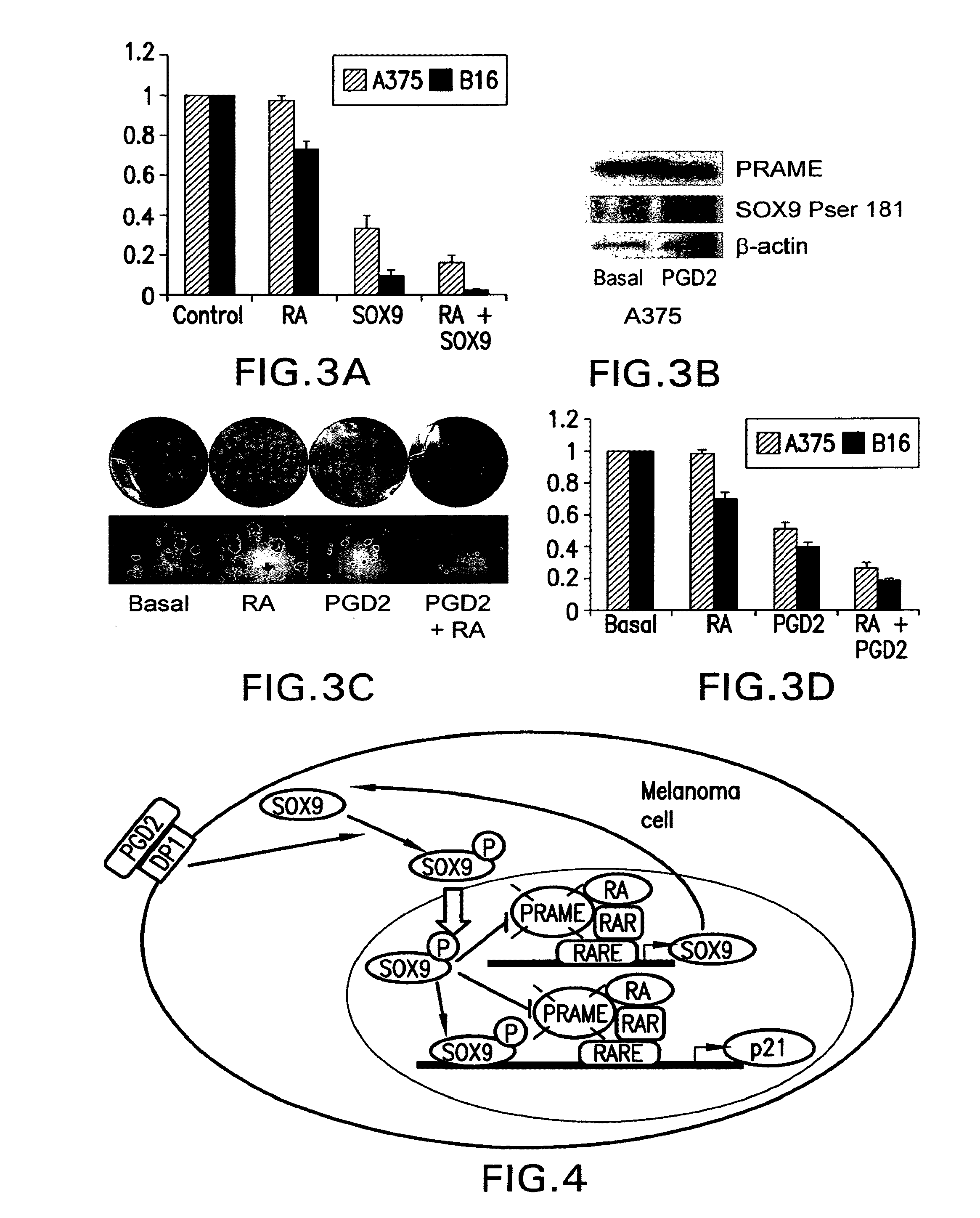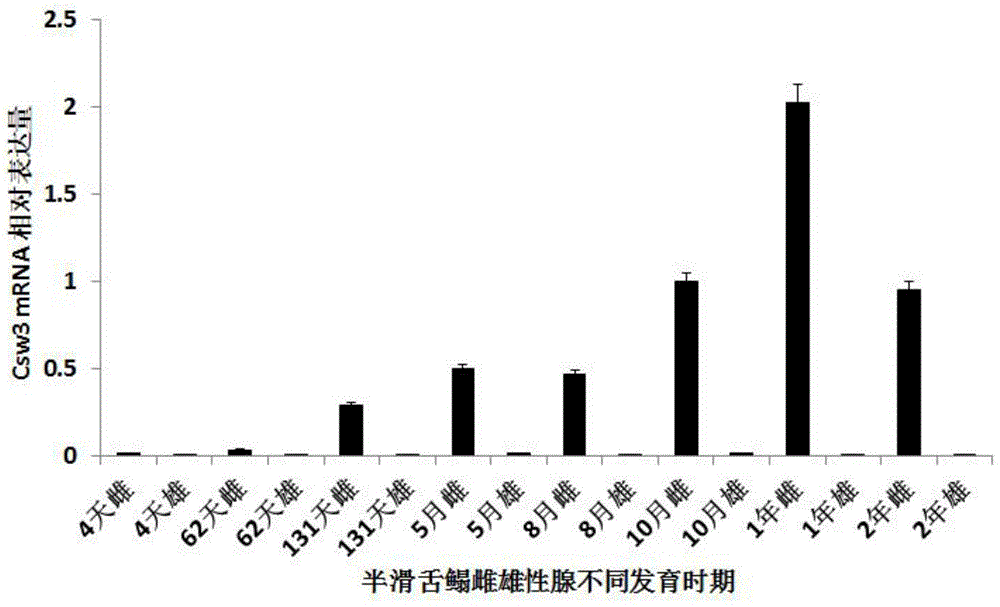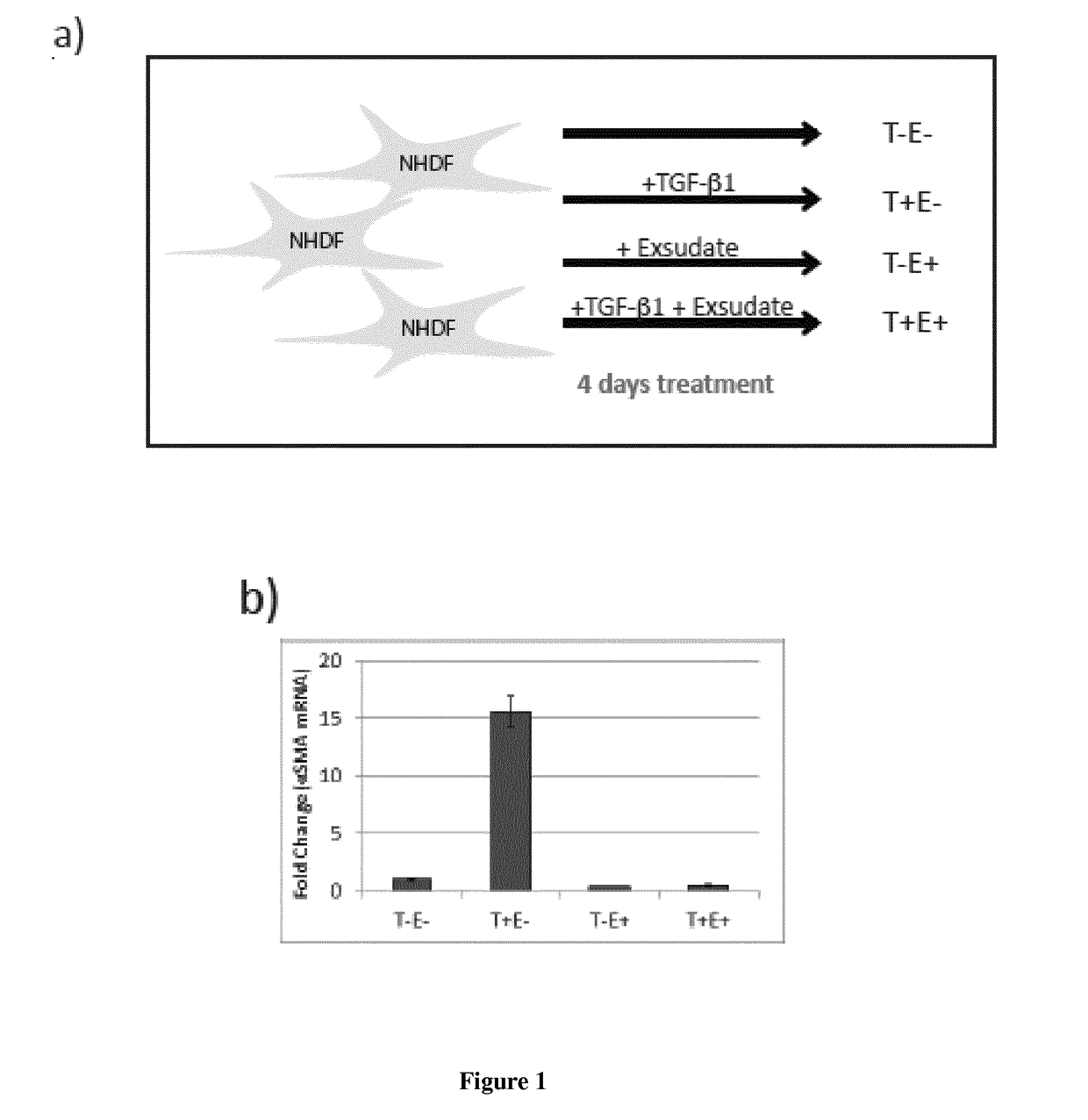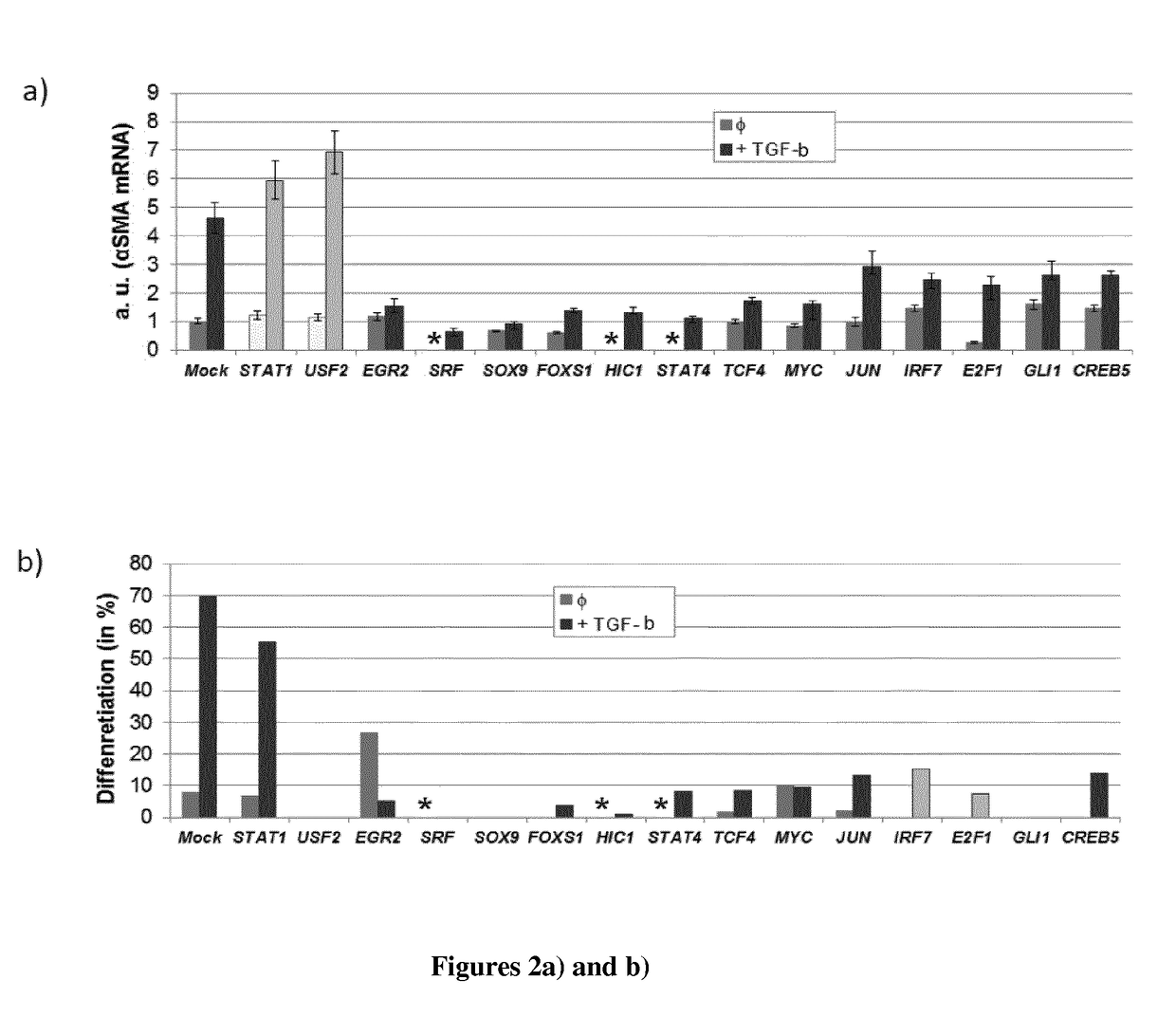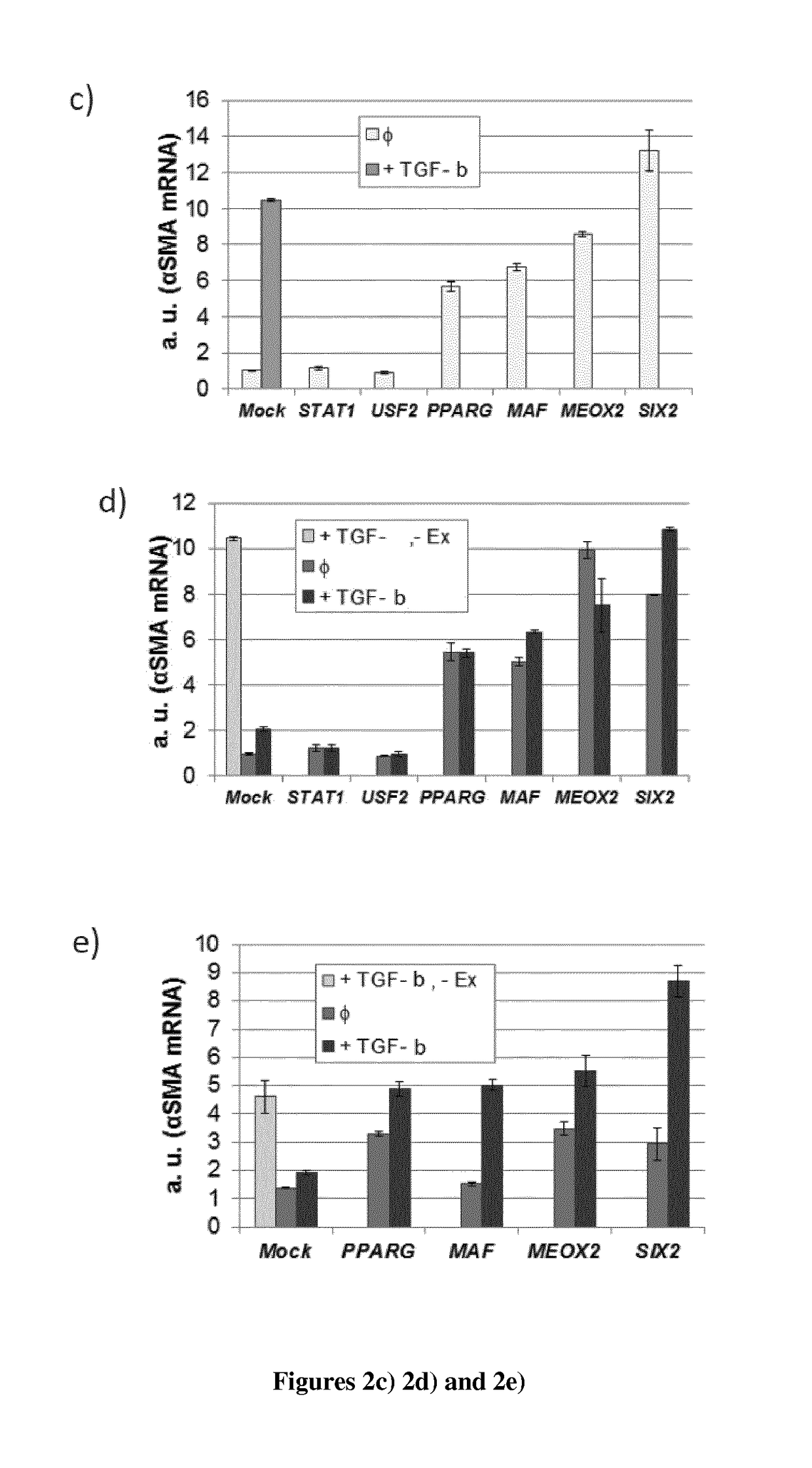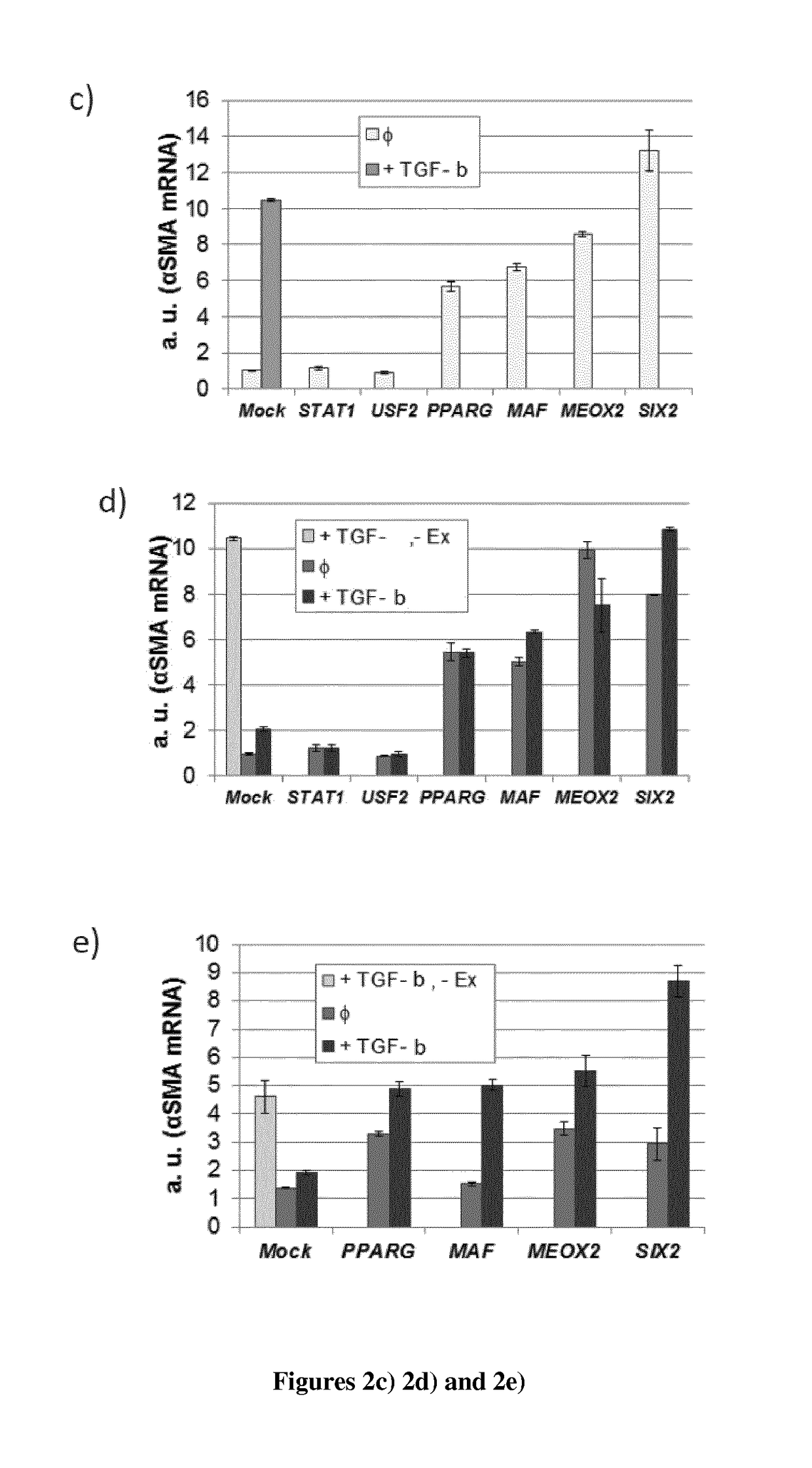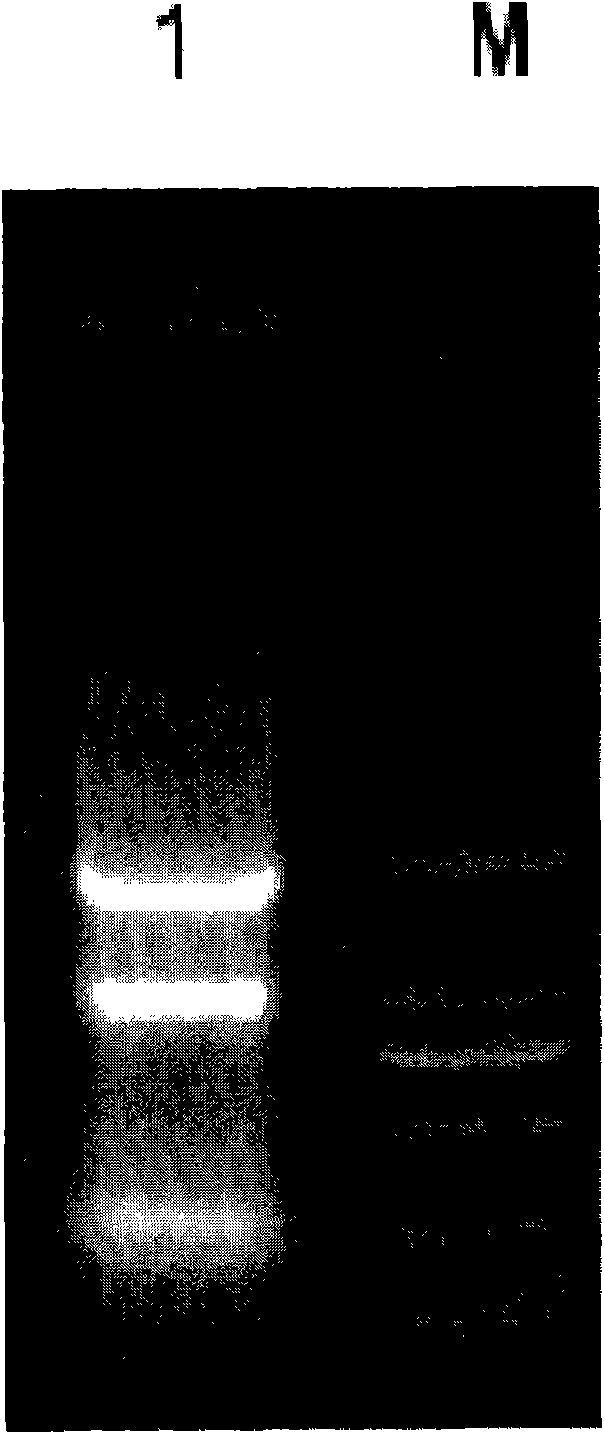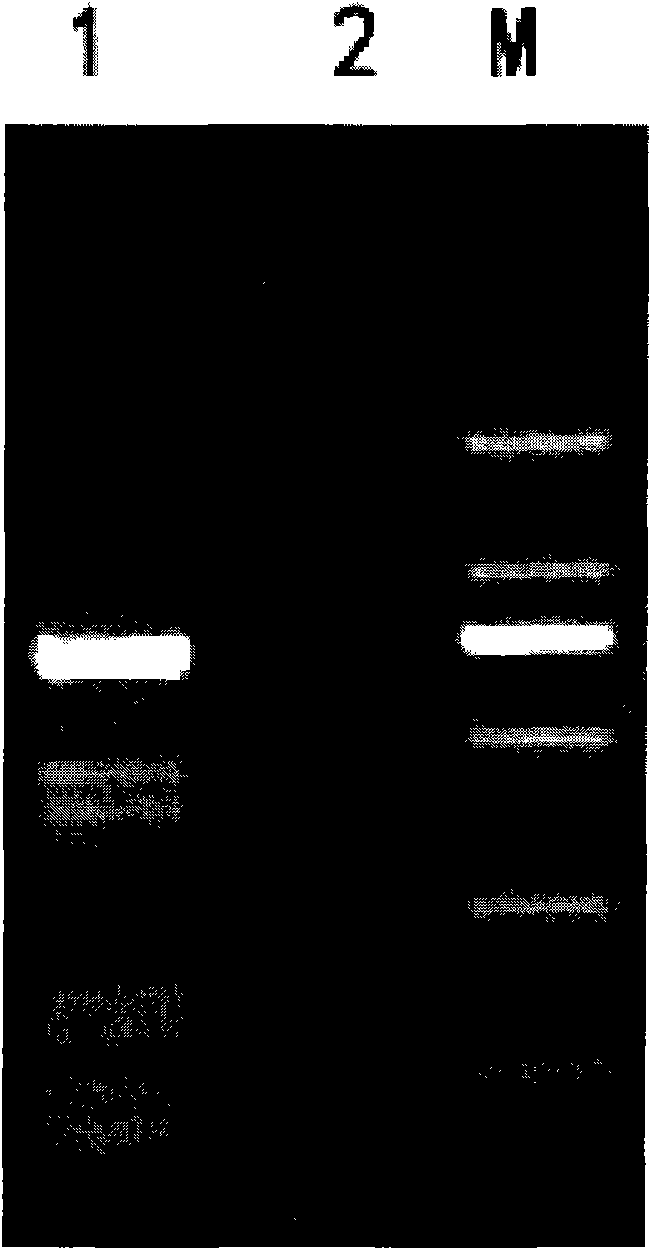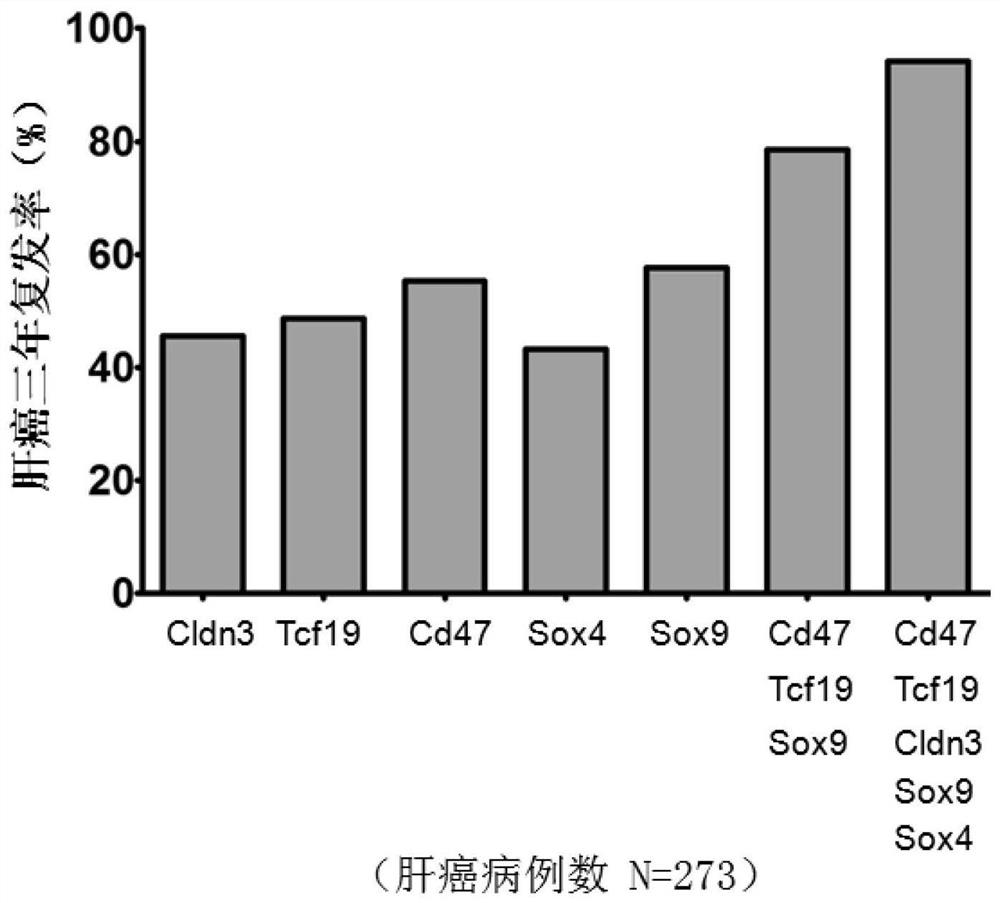Patents
Literature
Hiro is an intelligent assistant for R&D personnel, combined with Patent DNA, to facilitate innovative research.
48 results about "SOX9" patented technology
Efficacy Topic
Property
Owner
Technical Advancement
Application Domain
Technology Topic
Technology Field Word
Patent Country/Region
Patent Type
Patent Status
Application Year
Inventor
Transcription factor SOX-9 is a protein that in humans is encoded by the SOX9 gene.
Methods and systems for converting precursor cells into intestinal tissues through directed differentiation
ActiveUS9719068B2Gastrointestinal cellsMicrobiological testing/measurementDiseaseIntestinal structure
The generation of complex organ tissues from human embryonic and pluripotent stem cells (PSCs) remains a major challenge for translational studies. It is shown that PSCs can be directed to differentiate into intestinal tissue in vitro by modulating the combinatorial activities of several signaling pathways in a step-wise fashion, effectively recapitulating in vivo fetal intestinal development. The resulting intestinal “organoids” were three-dimensional structures consisting of a polarized, columnar epithelium surrounded by mesenchyme that included a smooth muscle-like layer. The epithelium was patterned into crypt-like SOX9-positive proliferative zones and villus-like structures with all of the major functional cell types of the intestine. The culture system is used to demonstrate that expression of NEUROG3, a pro-endocrine transcription factor mutated in enteric anendocrinosis is sufficient to promote differentiation towards the enteroendocrine cell lineage. In conclusion, PSC-derived human intestinal tissue should allow for unprecedented studies of human intestinal development, homeostasis and disease.
Owner:CHILDRENS HOSPITAL MEDICAL CENT CINCINNATI
Methods and systems for converting precursor cells into intestinal tissues through directed differentiation
ActiveUS20130137130A1Gastrointestinal cellsMicrobiological testing/measurementDiseaseDirected differentiation
The generation of complex organ tissues from human embryonic and pluripotent stem cells (PSCs) remains a major challenge for translational studies. It is shown that PSCs can be directed to differentiate into intestinal tissue in vitro by modulating the combinatorial activities of several signaling pathways in a step-wise fashion, effectively recapitulating in vivo fetal intestinal al development. The resulting intestinal “organoids” were three-dimensional structures consisting of a polarized, columnar epithelium surrounded by mesenchyme that included a smooth muscle-like layer. The epithelium was patterned into crypt-like SOX9-positive proliferative zones and villus-like structures with all of the major functional cell types of the intestine. The culture system is used to demonstrate that expression of NEUROG3, a pro-endocrine transcription factor mutated in enteric anendocrinosis is sufficient to promote differentiation towards the enteroendocrine cell lineage. In conclusion, PSC-derived human intestinal tissue should allow for unprecedented studies of human intestinal development, homeostasis and disease.
Owner:CHILDRENS HOSPITAL MEDICAL CENT CINCINNATI
Prostate cancer biomarkers to predict recurrence and metastatic potential
Described herein are methods for predicting the recurrence, progression, and metastatic potential of a prostate cancer in a subject. For example, the method comprises detecting in a sample from a subject one or more biomarkers selected from the group consisting of FOXO1A, SOX9, CLNS1A, PTGDS, XPO1, LETMD1, RAD23B, ABCC3, APC, CHES1, EDNRA, FRZB, HSPG2, and TMPRSS2_ETV1 FUSION. The method can further comprise detecting in a sample from a subject one or more biomarkers selected from the group consisting of miR-103, miR-339, miR-183, miR-182, miR-136, and miR-221. An increase or decrease in one or more biomarkers as compared to a standard indicates a recurrent, progressive, or metastatic prostate cancer.
Owner:EMORY UNIVERSITY
Methods and systems for converting precursor cells into intestinal tissues through directed differentiation
ActiveUS20170362573A1Gastrointestinal cellsArtificial cell constructsIntestinal structureEnteroendocrine cell
The generation of complex organ tissues from human embryonic and pluripotent stem cells (PSCs) remains a major challenge for translational studies. It is shown that PSCs can be directed to differentiate into intestinal tissue in vitro by modulating the combinatorial activities of several signaling pathways in a step-wise fashion, effectively recapitulating in vivo fetal intestinal development. The resulting intestinal “organoids” were three-dimensional structures consisting of a polarized, columnar epithelium surrounded by mesenchyme that included a smooth muscle-like layer. The epithelium was patterned into crypt-like SOX9-positive proliferative zones and villus-like structures with all of the major functional cell types of the intestine. The culture system is used to demonstrate that expression of NEUROG3, a pro-endocrine transcription factor mutated in enteric anendocrinosis is sufficient to promote differentiation towards the enteroendocrine cell lineage. In conclusion, PSC-derived human intestinal tissue should allow for unprecedented studies of human intestinal development, homeostasis and disease.
Owner:CHILDRENS HOSPITAL MEDICAL CENT CINCINNATI
Methods and compositions for generating chondrocyte lineage cells and/or cartilage like tissue
A method for generating chondrocytes and / or cartilage, optionally articular like non-hypertrophic chondrocyte cells and / or cartilage like tissue and / or hypertrophic chondrocyte like cells and / or cartilage like tissue, the method comprising: a. culturing a primitive streak-like mesoderm population, optionally a CD56+, PDGFR[alpha]+KDR- primitive streak-like mesoderm population, with a paraxial mesoderm specifying cocktail comprising: i. a FGF agonist; ii. a BMP inhibitor; optionally Noggin, LDN-193189, Dorsomorphin; and iii. optionally one or more of a TGF[beta] inhibitor, optionally SB431524; and a Wnt inhibitor, optionally DKK1, IWP2, or XAV939; to specify a paraxial mesoderm population expressing cell surface CD73, CD105 and / or PDGFR-beta; b. generating a chondrocyte precursor population comprising: i. culturing the paraxial mesoderm population expressing CD73, CD105 and / or PDGFR-beta at a high cell density optionally in serum free or serum containing media; ii. culturing the high cell density CD73+, CD105+ and / or PDGFR[beta]+ paraxial mesoderm population with a TGF[beta]3 agonist in serum free media to produce a high cell density Sox9+, collagen 2+ chondrocyte precursor population; and c. either i. culturing the high cell density Sox9+, collagen 2+ chondrocyte precursor population with the TGFbeta3 agonist for an extended period of time to produce an articular like non-hypertrophic chondrocyte cells and / or cartilage like tissue; or ii. culturing the high cell density Sox9+ collagen2+ chondrocyte precursor population with a BMP4 agonist for an extended period of time to produce a hypertrophic chondrocyte like cells and / or cartilage like tissue.
Owner:UNIV HEALTH NETWORK
Sox9 inhibitors
Methods for treating a condition associated with proteoglycan production in a mammal are provided. The methods comprise the administration of at least one of a calmodulin antagonist, a transient receptor potential (TRP) channel inhibitor and a calmodulin-binding peptide to the mammal.
Owner:UNIV OF WESTERN ONTARIO
Colorectal cancer metabolic gene prognosis prediction model
ActiveCN113151483AIncreased sensitivityStrong specificityMicrobiological testing/measurementICT adaptationOncologyBiology
The invention relates to a colorectal cancer metabolic gene prognosis prediction model, relates to biomarkers UGT2A, ACAA2, PKM, GPX3, PAFAH1B3 and SOX9, and further comprises application of reagents for detecting the expression quantity of the markers in preparation of a kit for evaluating colorectal cancer prognosis survival. The prognosis of a patient is judged on the basis of the diagnostic markers and a corresponding prediction model (i.e., according to the sum of products of expression quantities and coefficients of six metabolism-related genes and clinical characteristics of the patient are combined), which have the advantage of efficiently and accurately predicting the prognosis of the colorectal cancer patient, effective guidance is provided for clinicians to make a treatment decision on the colorectal cancer patient, invalid treatment is reduced, and therefore the treatment cost and uncomfortable experience of the patient are reduced.
Owner:上海伯塞斯医学生物科技有限公司
Cell culture solution for enhancing cartilage differentiation induction, method and application
PendingCN111826343APromote growthPromote proliferationCulture processSkeletal/connective tissue cellsChondroblast differentiationPlatelet lysate
The invention discloses a cell culture solution for enhancing cartilage differentiation induction, a method and an application. A blood platelet lysate is extracted and prepared from clinically wasteplacental blood, so that the source is wide, and the cost is low. Mesenchymal stem cells obtained by the method can stably grow in an adherent manner, characteristics are similar to those of cells obtained by a conventional culture method, and the cells are in a typical fusiform vortex shape under a microscope; and compared with the conventional culture method, the method has the advantages that expression of cartilage differentiation marker genes SOX9 and COL2A1 in the cells can be effectively activated, the number and strength of formed cartilages after in-vitro induction are obviously improved, and the higher chondroblast differentiation capacity is shown.
Owner:北京中卫医正科技有限公司
Method for marking germ cells and Sertoli cells of spermatogenic epithelium of turbot in different developmental stages and application
ActiveCN108330195AEasy to markHigh precisionMicrobiological testing/measurementDevelopmental stagePlant Germ Cells
The invention discloses a method for marking germ cells and Sertoli cells of spermatogenic epithelium of turbot in different developmental stages and an application. Fragment Amh / Sox9 / Gsdf is amplified from cDNA of turbot spermary, cloning, preferring and plasmid extraction are performed sequentially, plasmids are linearized by restriction enzymes, probes are prepared after plasmid recovery, fixation, dehydration and entrapment are performed after sample processing, fluorescence in situ hybridization is performed after slicing, finally, nuclear staining is performed, and slice sealing, observation and photographing are performed. The method has the beneficial effects as follows: spermatids and the Sertoli cells of the spermatogenic epithelium of the turbot in different developmental stagesare separated out skillfully, and the marking method is simple and feasible and higher in precision; the method for marking the germ cells and the Sertoli cells of the spermatogenic epithelium of theturbot in different developmental stages can be applied to distinguishing and marking of cells of the spermatogenic epithelium of other marine organisms, and an effective method and a scientific basis are provided for studying spermatogenesis of fish and environment in the spermatogenic epithelium in future.
Owner:ZHEJIANG OCEAN UNIV +1
Cynoglossus semilaevis female specificity CSW3 protein as well as gene and application thereof
ActiveCN103739696AImprove developmentRaise the ratioPeptide/protein ingredientsAnimal feeding stuffNucleotideCynoglossus semilaevis
The invention relates to a cynoglossus semilaevis female specificity CSW3 protein as well as a gene and an application thereof, which belong to the technical field of functional gene selection and application in an aquatic biological technology. The amino acid sequence of the cynoglossus semilaevis female specificity CSW3 protein is SEQ ID NO. 1; a nucleotide sequence for encoding the CSW3 gene of the CSW3 protein is SEQ ID NO.2. By adopting the in-vitro recombination cynoglossus semilaevis female specificity CSW3 protein of the CSW3 gene, the expression level of female relevant gene foxl2 can be obviously increased, and the biological activity for stimulating the female relevant gene expression can be realized; meanwhile, the biological activity for reducing the male relevant gene sox9 and amh expression level can be realized. After a CSW3 gene recombination product is used as a feed additive, the development of the female gonad can be stimulated, and the ratio of the female fish can be increased, so that the cynoglossus semilaevis female specificity CSW3 protein has the application potential on controlling the gender of the cynoglossus semilaevis and increasing the ratio of the female fish fries.
Owner:YELLOW SEA FISHERIES RES INST CHINESE ACAD OF FISHERIES SCI
Culture method for inducing chondrogenic differentiation of adipose-derived stem cells and culture solution
InactiveCN108410803AEffectively induces chondrogenic differentiationMeet needsCell dissociation methodsSkeletal/connective tissue cellsDigestionBottle
The invention discloses a culture method for inducing chondrogenic differentiation of adipose-derived stem cells and a culture solution. The culture method comprises the following steps: (1) taking asubcutaneous fatty tissue, washing the subcutaneous fatty tissue, removing an adipose tissue membrane and blood vessels and shearing the subcutaneous fatty tissue into broken blocks, carrying out enzymic digestion, adding a complete medium, centrifuging to remove adipose cells and lipid droplets, resuspending on the complete medium, inoculating into a culture bottle, culturing for 24 h and then changing the culture solution to remove cells which are not attached to walls, changing the solution every three days, digesting for 3-5 min with 0.25% of pancreatin and 1 mmol / L EDTA at the temperatureof 37 DEG C after cell fusion, stopping digestion of the complete medium, and carrying out passage at the ratio of 1: 2; and (2) inoculating passage cells into the culture bottle which contains the complete medium, culturing for 48h and then changing the medium into an incomplete medium, adding a Sox9 gene activator to continue culturing, and changing the medium every three days. By the providedmethod, chondrogenic differentiation of the adipose-derived stem cells can be induced effectively, the adipose-derived stem cells can be used as seed cells to prepare a large number of chondrocytes tomeet clinic requirements to the chondrocytes.
Owner:HUNAN YUANPIN CELL TECH CO LTD
N-gallic amide-pyrimidine phenyl sulfonamide derivative as well as preparation method and application thereof
ActiveCN104193686AAntibacterial agentsOrganic active ingredientsPhenylsulfonamideCell-Extracellular Matrix
The invention relates to an N-gallic amide-pyrimidine phenyl sulfonamide compound as well as a preparation method and an application of the compound in preparation of medicines for resisting bacteria and promoting the growth of cartilage cells. The N-gallic amide-pyrimidine phenyl sulfonamide compound and a water soluble salt thereof have certain bacteriostatic action on staphylococcus aureus, escherichia coli, pseudomonas aeruginosa, acinetobacter, proteusbacillus vulgaris, pulmonary tuberculosis and the like in vitro, and have an obvious promotion effect on proliferation of bone cells, and synthesis of total protein and glycosaminoglycan in chondrocyte, the gene levels of proteoglycan, II collagen and SOX9 gene can also be regulated upwards, the gene level of I collagen can be inhibited, secretion and synthesis of extracellular matrix of the cartilage can be promoted, and the compound can be applied to preparation of the medicines for treating osteoarthritis.
Owner:湖南沛草堂中医药科技有限公司
Method for promoting differentiation of human amniotic mesenchymal stem cells into chondrocytes and application thereof
InactiveCN106282101AAvoid High Immunogenicity IssuesCell dissociation methodsCulture processDiseaseL-Ascorbate
The invention relates to a method for promoting differentiation of human amniotic mesenchymal stem cells into chondrocytes. The method comprises the step of adding an induction composition into the human amniotic mesenchymal stem cells, wherein the induction composition comprises 0.01-2g / L of hyaluronic acid and 0-100mg / L of ascorbic acid. Compared with the conventional induction method, the method disclosed by the invention has the advantages that the effect of promoting differentiation of human amniotic mesenchymal stem cells into chondrocytes can be obviously improved, glycosaminoglycan and type II collagen expression is strongly positive, expression of chondrogenesis related genes and proteins such as Col2alpha1, ACAN, Sox9 and the like is obviously improved, and the efficiency of differentiating the human amniotic mesenchymal stem cells into chondrocytes can be obviously improved. The induction composition disclosed by the invention can be used for differentiation of human amniotic mesenchymal stem cells into chondrocytes and cartilage injury diseases.
Owner:AFFILIATED HOSPITAL OF ZUNYI MEDICAL COLLEGE
Female cynoglossus semilaevis specific expression gene CSW2 and applications thereof
ActiveCN103509099ARaise the ratioStimulate biological activityAnimal feeding stuffAccessory food factorsNucleotideOrganism
The invention relates to a female cynoglossus semilaevis specific protein CSW2, whose amino acid sequence is represented by the SEQ ID No.2; the sequence of the nucleotide, which encodes the female cynoglossus semilaevis specific protein CSW2, is represented by the SEQ ID No.1. The external recombinant protein of the CSW2 gene can prominently improve the aromatizing enzyme expression level of female cynoglossus semilaevis fry related genes, namely fox12 and P450, has a biological activity which can promote female-related gene expression, and at the same time has a biological activity that can reduce the expression level of male-related gene SOX9. The recombinant expression product of CSW2 can be used as a feed addictive, which has the function of promoting the growth of female gonad and has an effect of improving the female fish ratio. So the CSW2 gene provided by the invention has a potential application prospect on aspects of cynoglossus semilaevis gender control and improvement on the female fry ratio.
Owner:YELLOW SEA FISHERIES RES INST CHINESE ACAD OF FISHERIES SCI
Chondrocyte-like cell, and method for producing same
InactiveUS20110252486A1Effective treatmentReduce the burden onCompounds screening/testingOrganic active ingredientsSomatic cellCell biology
Disclosed is a cell which enables the reproduction of a cartilage tissue and has a proliferative ability. Also disclosed is a technique for providing a cell supply source which can be used in a definitive treatment of osteochondrosis deformans. A chondrocyte-like cell which has the same properties as those of a chondrocyte and can proliferate can be produced by selecting a combination of an Myc family gene and / or a Klf family gene and a SOX9 gene and introducing the combination into a somatic cell. The chondrocyte-like cell can be used for a medical purpose of cartilage regeneration.
Owner:IPS ACAD JAPAN
Application of combination of morroniside and stem cells to preparation of cartilage repair materials
InactiveCN111870741APromote differentiationPromote repairTissue regenerationProsthesisPhosphorylationCartilage repair
The invention relates to an application of combination of morroniside and stem cells to preparation of cartilage repair materials. Morroniside can promote phosphorylation of an Smad3 signal channel ofa rat MSC cultured in vitro to improve expression of the Sox9 protein level of the rat MSC without affecting the expression level of endogenous TGF-beta 3 genes of the rat MSC, TGF-beta receptors areinhibited through Ly2157299,, the phosphorylation effect of an SMAD3 signal channel of the rat MSC cultured in vitro is inhibited, and the expression of the Sox9 protein level is reduced. When the morroniside is applied to the rat MSC to which the Ly2157299 is applied, the inhibition effect of the Ly2157299 on the phosphorylation of the SMAD3 can be partially reversed. The etiology acidificationof an ERK signal channel is inhibited through U0126, and the phosphorylation effect of the SMAD3 signal channel of the rat MSC cultured in vitro is inhibited.
Owner:ZHONGSHAN HOSPITAL XIAMEN UNIV
Cellular blend for the regeneration of chondrocytes or cartilage type cells
PendingUS20190022145A1Avoid problemsSkeletal disorderMammal material medical ingredientsFibroblastCells fibroblast
The present disclosure concerns at least methods and compositions for repairing and / or regenerating a disc of an individual in need thereof. In certain embodiments, an individual that is known to have or suspected to have or at risk for having a degenerated disc is provided a therapeutically effective amount of nucleus pulposus cells, one or more components from the nucleus pulposus, conditioned medium generated from nucleus pulposus cells, and additionally may also be provided fibroblasts, platelet rich plasma (PRP), SOX9 (protein or nucleic acid), and / or Tie2+ cells, for example.
Owner:SPINALCYTE
Core-binding factor alpha1 gene recombinant virus for specifically promoting cartilage differentiation, preparation method and application thereof
InactiveCN101979520AEasy to prepareLow costViruses/bacteriophagesFermentationCartilage cellsCore binding factor
The invention discloses a core-binding factor alpha1 (Cbfa1) gene recombinant virus for specially promoting cartilage differentiation, a preparation method and application thereof. The recombinant virus contains one Cbfa1 gene expression box regulated and controlled by a Sox9 gene promoter; the preparation method comprises the following steps of clone of Cbfa1 gene full-length cDNA and construction of Cbfa1 gene recombinant adenovirus shuttle plasmid, clone of Sox9 gene promoter fragment and construction of the Sox9 gene promoter recombinant expression carrier, construction of Cbfa1 gene recombinant adenovirus carrier regulated and controlled by the Sox9 gene promoter, package, amplification and purification of the Cbfa1 gene recombinant adenovirus regulated and controlled by the Sox9 gene promoter and the like. The recombinant virus can be used for preparing seed cells for directionally inducing chondroblast differentiation and can efficiently and specifically ensure that the mesenchymal stem cells differentiate into chondroblast on the premise of differentiating into osteogenesis / cartilage cells.
Owner:ARMY MEDICAL UNIV
Amorphous hyaluronic acid-magnesium/calcium polyphosphate microparticles for cartilage regeneration and repair
InactiveUS20180015205A1Improve adhesionUpregulates expressionPowder deliveryOrganic active ingredientsBiomechanicsIon calcium
This invention concerns a biomimetic material based on energy-rich amorphous magnesium polyphosphate (Mg-polyP) microparticles that enhance cartilage synthesis and regeneration. One preferred formulation of the inventive material is a hyaluronic acid-Mg / Ca-polyP paste that can be produced from a water-soluble salt of polyP and water-soluble hyaluronic acid in the presence of water-insoluble / nearly insoluble calcium carbonate. Surprisingly, the inventor found that this cartilage-like material comprising amorphous Mg / Ca-polyP microparticles promotes the adhesion of chondrocytes and strongly upregulates the expression of the chondrocyte marker genes encoding alkaline phosphatase, collagen type 3A1, aggrecan and Sox9. The material through scavenging calcium ions (Mg2+ / Ca2+ exchange) and binding of the calcium-polyP to hyaluronic acid shows biomechanical properties, comparable to cartilage and thus can be used for prevention of calcium crystal formation in the synovial fluid and treatment of joint dysfunctions caused by osteoarthritis.
Owner:NANOTECMARIN
3,4,5-trihydroxy gallic acrylamide benzene sulfonamide derivatives as well as preparation method and application thereof
ActiveCN104193690AAntibacterial agentsOrganic active ingredientsCell-Extracellular MatrixECM Protein
The invention relates to 3,4,5-trihydroxy gallic acrylamide benzene sulfonamide compounds as well as a preparation method and an application of the compounds in preparation of medicines for resisting bacteria and promoting the growth of cartilage cells. Most of compounds in the compounds have certain bacteriostatic action on staphylococcus aureus, escherichia coli, pseudomonas aeruginosa, acinetobacter, proteusbacillus vulgaris, pulmonary tuberculosis and the like in vitro, and have an obvious promotion effect on proliferation of bone cells, and synthesis of total protein and glycosaminoglycan in chondrocyte, the gene levels of proteoglycan, II collagen and SOX9 gene can also be regulated upwards, the gene level of I collagen can be inhibited, secretion and synthesis of extracellular matrix of the cartilage can be promoted, and the compounds can be applied to preparation of medicines for treating osteoarthritis.
Owner:GUANGXI UNIV
Preventive and therapeutic drug for cartilaginous hyperplasia and method of screening for the same
A method of screening for a therapeutic and / or preventive drug for cartilaginous hyperplasia and a therapeutic and / or preventive drug for cartilaginous hyperplasia are provided.The following are provided: a method of screening for a therapeutic and / or preventive drug for cartilaginous hyperplasia, comprising a step of culturing chondroprogenitor cells under conditions in which the cells are brought into contact with a test substance and conditions in which the cells are not brought into contact with the test substance and a step of determining the SOX9 promoter activity, cAMP level, or degree of phosphorylation of CREB in the cells or the extracellular matrix volume in a culture; and a therapeutic and / or preventive drug for cartilaginous hyperplasia, comprising as an active ingredient an adenylate cyclase inhibitor.
Owner:KYOTO UNIV
Compositions and Methods for Treating Pigmentary Conditions and Melanoma
A method of treating a hypopigmentary condition in a subject comprising administering to the subject an amount of SOX9 sufficient to treat melanoma is disclosed. The hypopigmentary condition can be a result of surgery, trauma or vitiligo. A method of treating a hyperpigmentary condition in a subject comprising administering to the subject an amount of inhibitor of SOX9 activity sufficient to treat melanoma is disclosed. A method of treating melanoma in a subject comprising administering to the subject an amount of SOX9 sufficient to treat melanoma is disclosed. A method of treating melanoma in a subject comprising increasing the amounts of retinoic acid and SOX9 in the subject by amounts sufficient to treat melanoma. A method of treating melanoma in a subject comprising administering to the subject an amount of prostaglandin D2 (PGD2) and retinoic acid (RA) sufficient to treat cancer. A method of sensitizing a melanoma cell to RA comprising administering to the subject an amount of SOX9 sufficient to decrease PRAME expression. A method of increasing p21 expression in a subject comprising administering to the subject an amount of SOX9 sufficient to increase p21 expression. Methods of screening for compounds that treat hypopigmentary conditions and / or melanoma are provided.
Owner:US DEPT OF HEALTH & HUMAN SERVICES
Predictive marker of DNMT1 inhibitor therapeutic efficacy and methods of using the marker
ActiveUS9383364B2Hydroxy compound active ingredientsMicrobiological testing/measurementAntibody fragmentsMethyltransferase 1
Owner:UNIV OF LOUISVILLE RES FOUND INC
Compositions and methods for treating pigmentary conditions and melanoma
Owner:UNITED STATES OF AMERICA
Preventive and therapeutic drug for cartilaginous hyperplasia and method of screening for the same
A method of screening for a therapeutic and / or preventive drug for cartilaginous hyperplasia and a therapeutic and / or preventive drug for cartilaginous hyperplasia are provided.The following are provided: a method of screening for a therapeutic and / or preventive drug for cartilaginous hyperplasia, comprising a step of culturing chondroprogenitor cells under conditions in which the cells are brought into contact with a test substance and conditions in which the cells are not brought into contact with the test substance and a step of determining the SOX9 promoter activity, cAMP level, or degree of phosphorylation of CREB in the cells or the extracellular matrix volume in a culture; and a therapeutic and / or preventive drug for cartilaginous hyperplasia, comprising as an active ingredient an adenylate cyclase inhibitor.
Owner:KYOTO UNIV
Cynoglossus semilaevis female specificity CSW3 protein as well as gene and application thereof
ActiveCN103739696BRaise the ratioStimulate biological activityPeptide/protein ingredientsAnimal feeding stuffAnimal scienceNucleotide
Owner:YELLOW SEA FISHERIES RES INST CHINESE ACAD OF FISHERIES SCI
Molecular targets for the treatment of wounds, in particular chronic wounds
InactiveUS20170281628A1Enhances the activity of at least one geneHigh expressionOrganic active ingredientsMetabolism disorderIRF7Chronic wound
The present invention relates to a therapeutic compound comprising: an agent that inhibits the activity of at least one gene selected from the group consisting of MAF, MEOX2, SIX2 and homologues thereof having at least 50% identity with said genes and / or an agent that enhances the activity of at least one gene selected from the group consisting of CREBS, E2F1, EGR2, HIC1, IRF7, JUN, MYC, SRF, STAT4, TCF4, FOXS1, GLI1, SOX9 and homologues thereof having at least 50% identity with said gene for use in the treatment of wounds, preferably chronic wounds.
Owner:URGO RECH INNOVATION & DEVEMENT +4
Molecular targets for the treatment of wounds, in particular chronic wounds
InactiveUS10071097B2Enhances the activity of at leastHigh expressionOrganic active ingredientsSugar derivativesChronic woundBiology
The present invention relates to a therapeutic compound comprising: an agent that inhibits the activity of at least one gene selected from the group consisting of MAF, MEOX2, SIX2 and homologs thereof having at least 50% identity with said genes and / or an agent that enhances the activity of at least one gene selected from the group consisting of CREB5, E2F1, EGR2, HIC1, IRF7, JUN, MYC, SRF, STAT4, TCF4, FOXS1, GLI1, SOX9 and homologs thereof having at least 50% identity with said gene for use in the treatment of wounds, preferably chronic wounds.
Owner:URGO RECH INNOVATION & DEVEMENT +4
Bovine embryo sex development related gene, encoding protein and preparation method thereof
The invention discloses a bovine embryo sex development related gene SOX9, relating to the biological field. A nucleotide sequence of the related gene is as shown by SEQ ID NO.1. The invention also provides an encoding protein of the gene, and an amino acid sequence of the encoding protein is as shown by SEQ ID NO.3. The invention also provides an extracting method of the gene, comprising the following steps of: extracting a total RNA (Ribonucleic Acid) from a bovine embryo genital ridge, amplifying by an RT-PCR (Reverse Transcription-Polymerase Chain Reaction) method, and cloning to a complete expressed sequence of the bovine embryo sex development related gene SOX9 by combining an RACE and nest-type PCR technology. The gene can be used for controlling the sex of a bovine offspring and has good application prospect.
Owner:INST OF ANIMAL SCI OF CHINESE ACAD OF AGRI SCI
Application of five biomarkers in preparation or screening of liver cancer diagnostic reagent
PendingCN113846163AEffectively predicts the risk of cancer recurrenceHealth-index calculationMicrobiological testing/measurementSOX4Biologic marker
The invention discloses application of five biomarkers in preparation or screening of a liver cancer diagnostic reagent. The biomarkers comprise at least one of following genes: CD47, Tcf19, Cldn3, Sox4 and Sox9. The five biomarkers can be used for effectively predicting the risk of cancer recurrence of a patient and provide assistance for clinical treatment.
Owner:深圳市龙华区中心医院
Features
- R&D
- Intellectual Property
- Life Sciences
- Materials
- Tech Scout
Why Patsnap Eureka
- Unparalleled Data Quality
- Higher Quality Content
- 60% Fewer Hallucinations
Social media
Patsnap Eureka Blog
Learn More Browse by: Latest US Patents, China's latest patents, Technical Efficacy Thesaurus, Application Domain, Technology Topic, Popular Technical Reports.
© 2025 PatSnap. All rights reserved.Legal|Privacy policy|Modern Slavery Act Transparency Statement|Sitemap|About US| Contact US: help@patsnap.com
